












CHIEF
CONTENT OFFICER SCOTT BIRCHCHIEF DESIGN OFFICER
MATT JOHNSONGRAPHIC DESIGN SAM HUBBARD
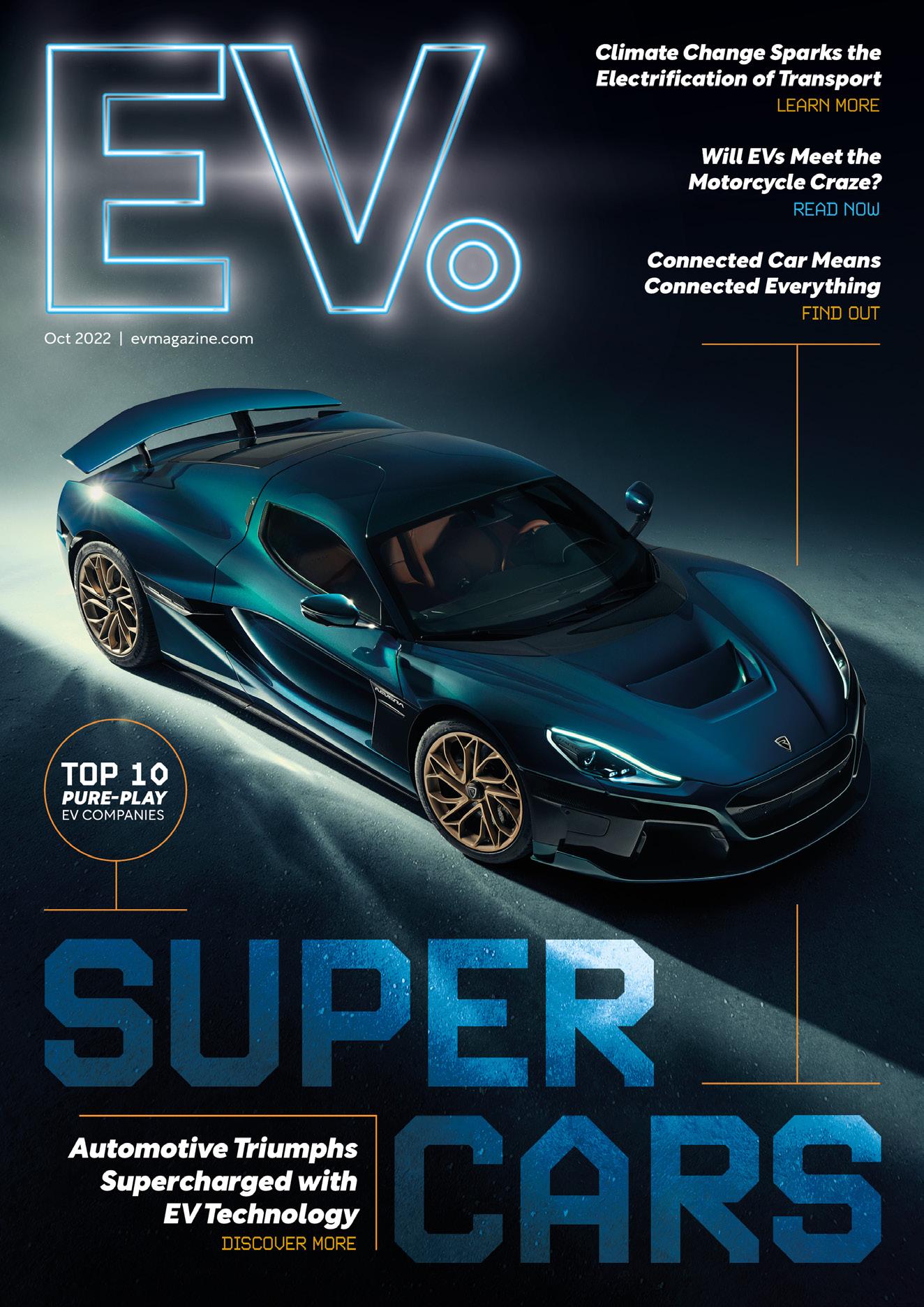
VIDEO PRODUCTION MANAGER KIERAN WAITE
PROJECT DIRECTOR THOMAS LIVERMORE
MARKETING MANAGER KAYLEIGH SHOOTER
CHIEF OPERATING OFFICER STACY NORMAN CEO GLEN WHITE
THE TEAM WILL BE VERY HAPPY IF YOU DO!
Manufacturers of fossil-fuel powered vehicles made commitments to end the sale of internal combustion engines (ICEs) by 2030—or 2040 for less economically developed countries.
Immediately, this seems like an endeavour solely undertaken by original equipment manufacturers (OEMs) and, while they hold the keys to the consumer’s pockets, it goes beyond B2C transaction. Electrification presents multiple new challenges, for which the world is not yet ready. The automotive industry is at the mercy of battery and component suppliers that have more work to do in order to meet the global demand for electrical components.
Industries have faced significant disruptions over recent years, such as the semiconductor shortage, the coronavirus pandemic—taking its toll on alreadydisrupted supply chains—and the immense pressure on all countries from the Russia-Ukraine crisis, causing havoc with energy supply across the globe. Nevertheless, electrification is spreading, so we’ve compiled insights from figures in the industry to portray the current state of play.
 tom.swallow@bizclikmedia.com
tom.swallow@bizclikmedia.com
EVMAGAZINE.COM [Oct 2022] 7
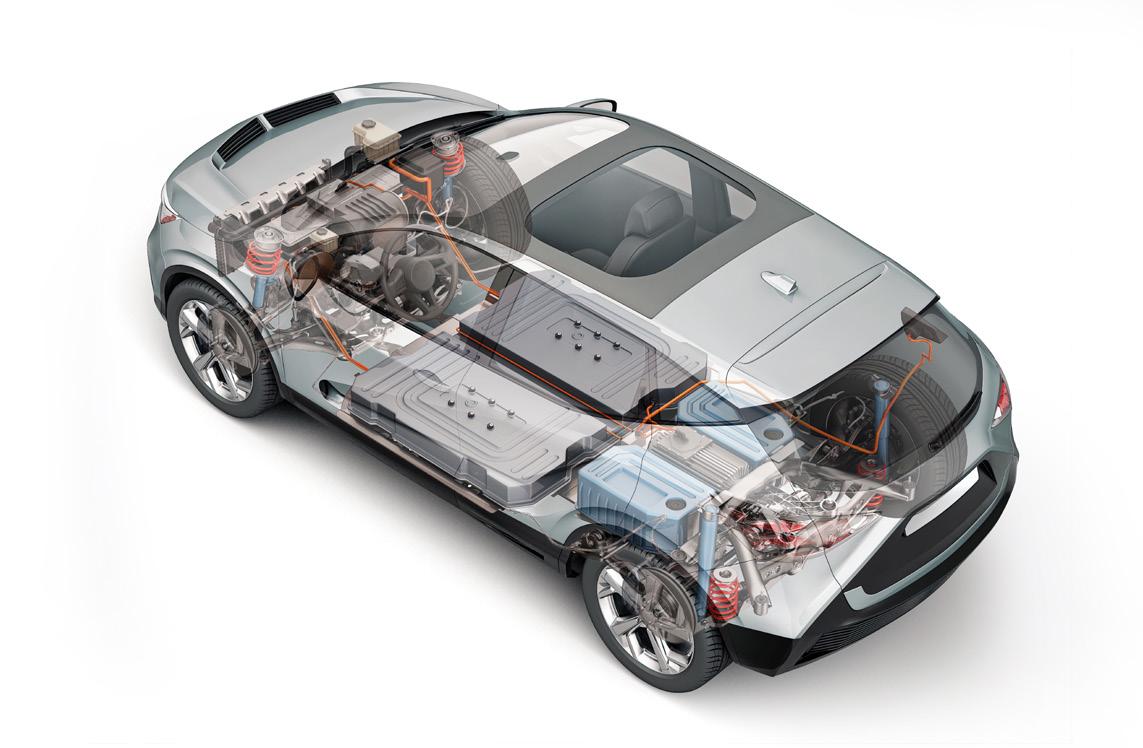


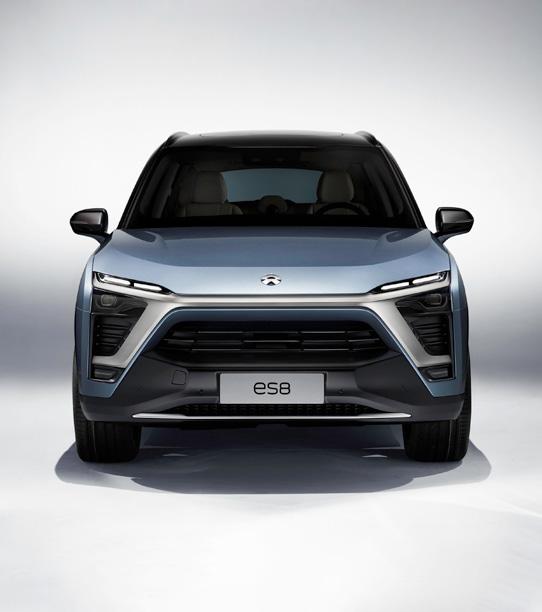
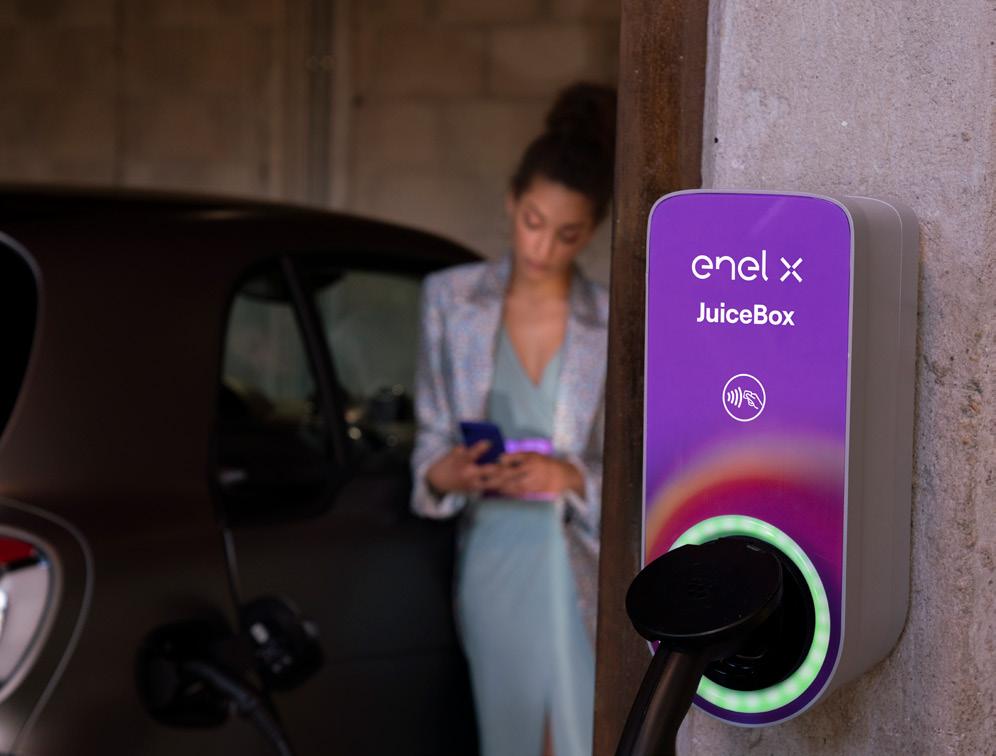
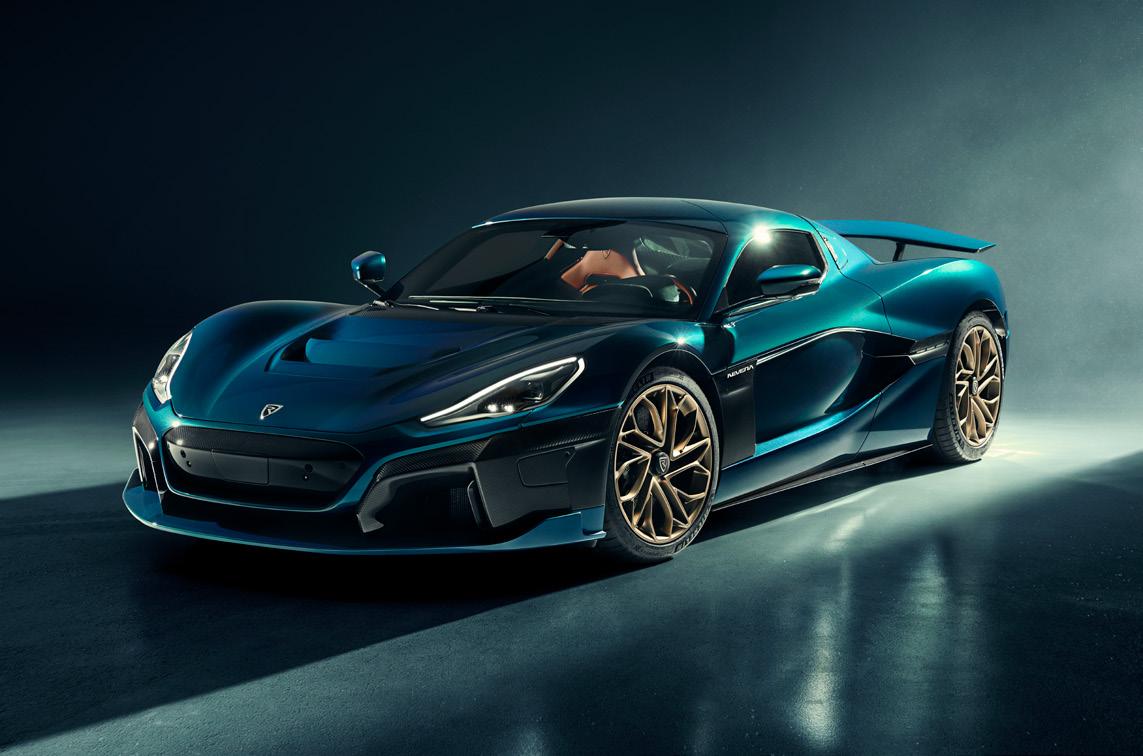

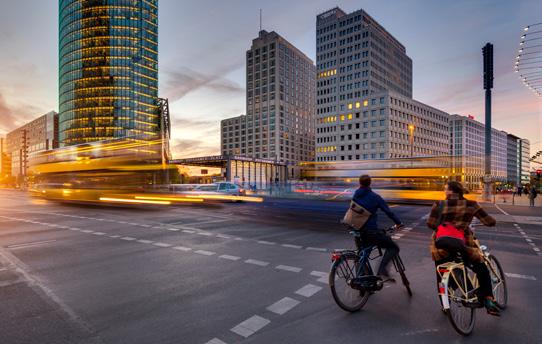
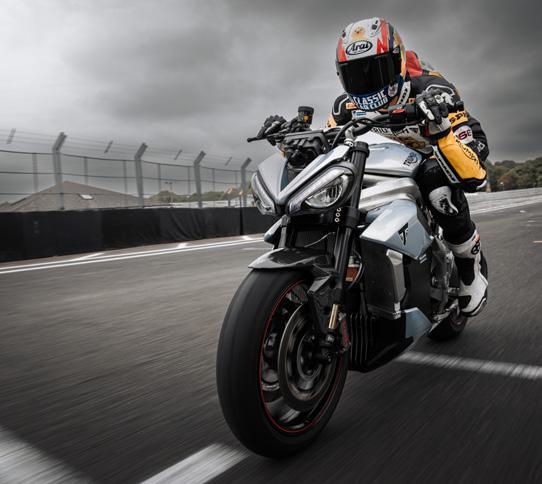



August was a big month for automotive corporation Volkswagen. The vehicle manufacturer announced exciting news, including its China group’s showcase of the Flying Tiger —the eVTOL developed by the company—and a strategic alliance with Mahindra Group to accelerate the electrification of the Indian automotive industry.

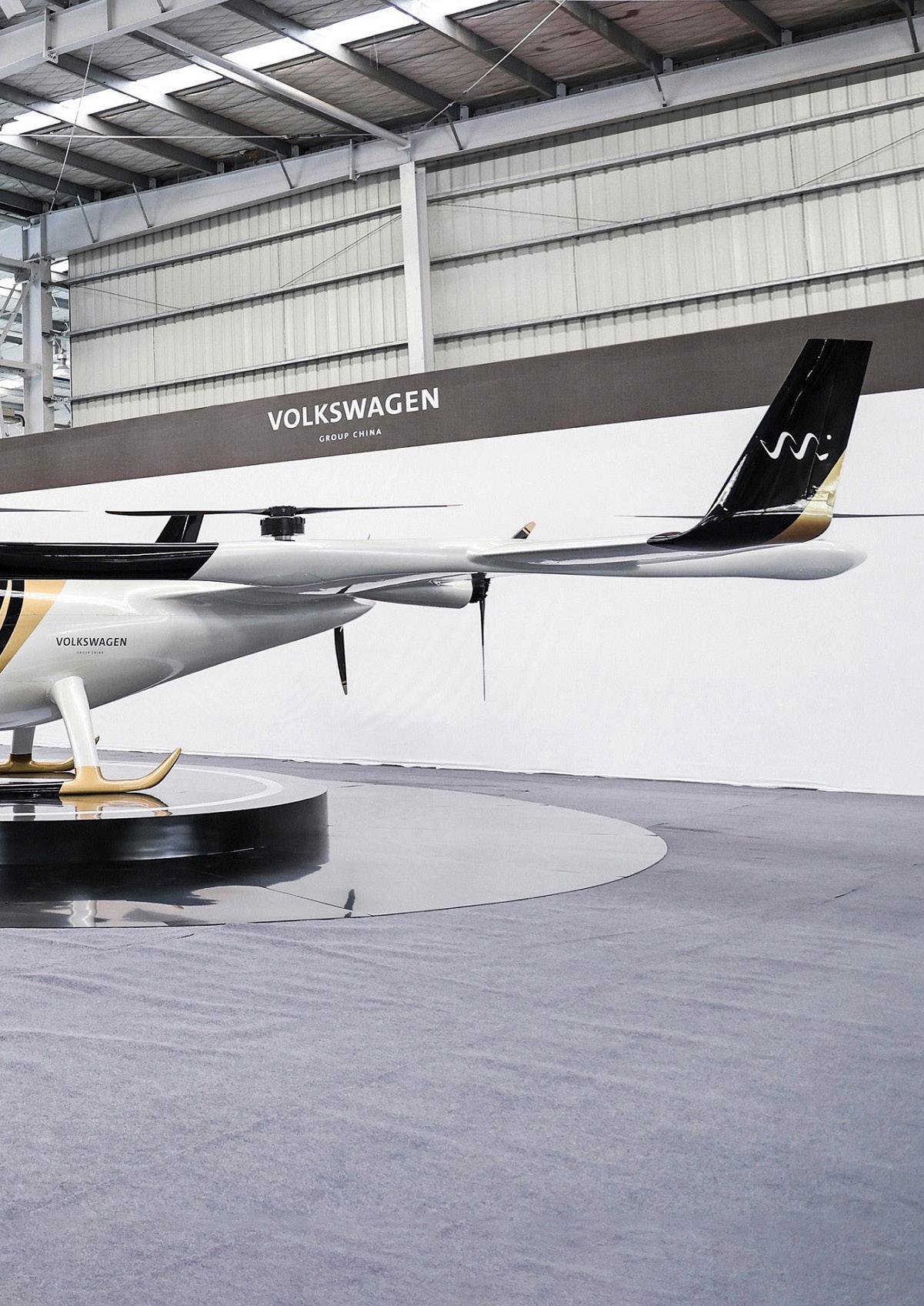
Anyone who owns, or has driven, an electric vehicle (EV) may have noticed that, when braking, the mileage increases slightly— and we’re here to explain why.
The regenerative (regen) braking function was introduced to EVs to leverage kinetic energy from the electric motor when the car slows down. This is a feature that is leveraged both on the road and in racing—a critical characteristic that Formula E incorporated into its race format.
Benefits of regen include less maintenance—as wear and tear on brake systems is reduced—and better efficiency, as more energy is sent back to the battery. So, how does it work?
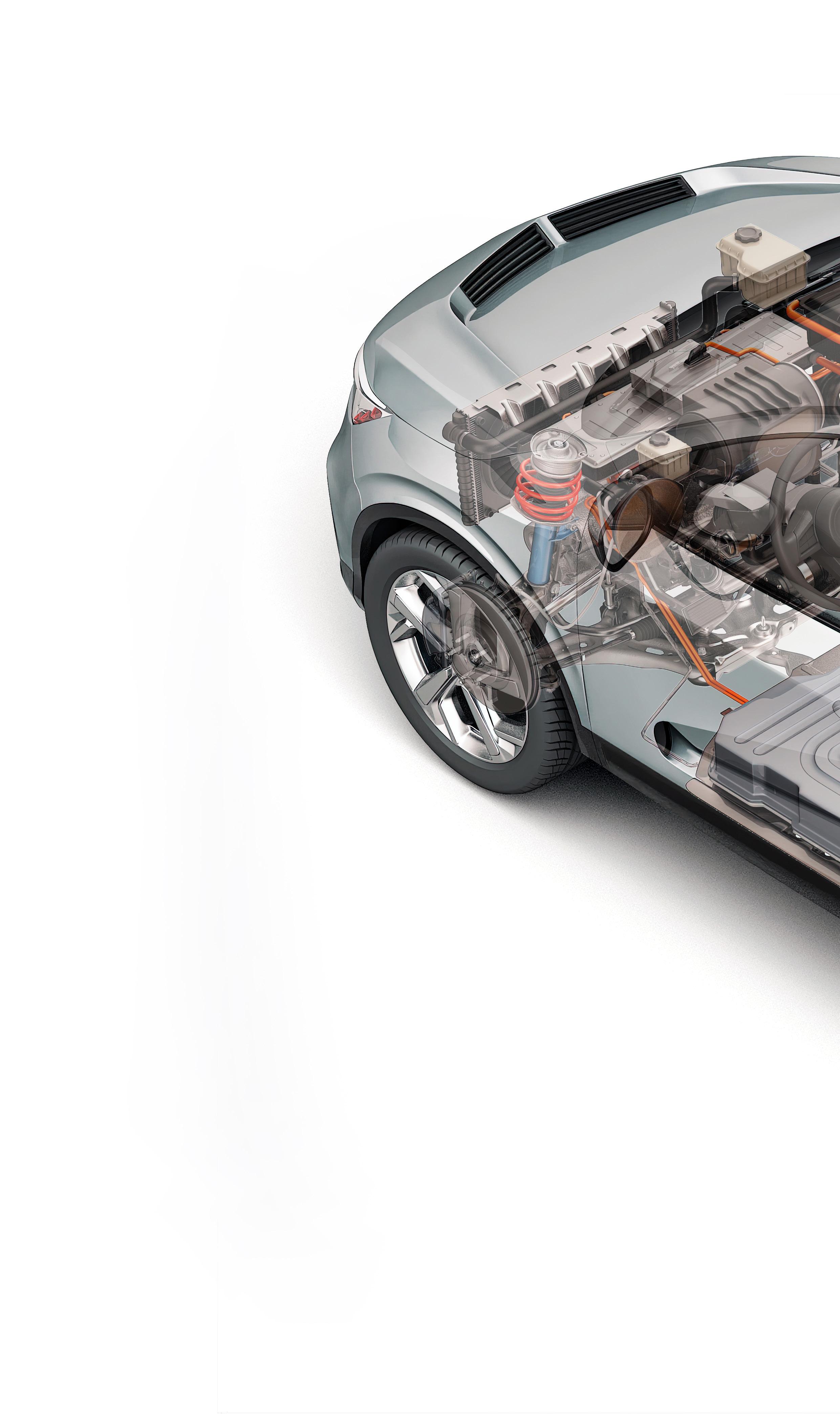
1 Releasing the accelerator activates regenerative braking , switching the car from the power output gear to charging mode.
2 The electric motor creates resistance to partially slow the car. The kinetic energy from this process creates more energy.
3 Electricity from regen braking is transferred to the battery
4 If braking harshly, the hydraulic braking system will also kick in

China is not only one of the leaders in tech, but also electric vehicles. NIO’s ES8 showcases the finest electrification with battery swapping technology
With a strong foothold in the electric vehicle industry, NIO is one of the pure-play manufacturers that’s revolutionising the way cars are maintained and operated. While its success in the FIA Formula E World Championship is critical to the team’s strategy, its work can be seen in practice, revolutionising the way that privately-owned cars are charged.

For many companies, the emphasis has been around charging, but NIO has taken an alternative approach in addressing the cons of charging. The NIO ES8 is one of the latest automobiles to be introduced by the company and works hand-in-hand with its vehicle battery swapping stations.

Owners of the ES8 will simply park up at the correct swapping station and let the rest take care of itself.
Aside from innovation, the car leverages sustainable design principles and incorporates innovative technologies that enable intuitive driving. Achieving 0 to 60mph in just 4.9 seconds, the ES8 is a family-sized SUV—and a fast one at that. The speed is also adjustable through the digital centre console, which allows the driver to select slower acceleration in exchange for more range.
Along with the speed of a classic hypercar and the space of a larger family car—with space for six or seven seats—it boasts a competitive range maxed out at 360 miles per charge. Safety is also manufactured into the vehicle and enhanced through the on-board assistant feature, Nomi, which turns speech into action.

Quite literally, there is only one task for the driver to complete in the process. Through the on-board system, the vehicle operator orders a battery from the swapping station and, in an Interstellar-style fashion, the car is automatically parked in line with the battery swapping mechanism.
Swapping batteries takes around five minutes to complete and results in an empty battery exchanged for a full charge. The system that charges the batteries is housed within the swapping station, meaning all are secure within the unit.
The days of power and acceleration being the differentiators between vehicles are almost in the past. The main factor driving the purchase of new cars is technological capability and the integration of artificial intelligence (AI) and digital devices. The ES8 uses NIO’s Nomi AI assistant, which activates many of the functions of the vehicle via voice commands. The system is designed to carry out multiple in-car functions with safety in mind and is also integral in the battery swapping process. NIO ES8

 SAM BIRD, JAGUAR TCS RACING © SAM BLOXHAM
SAM BIRD, JAGUAR TCS RACING © SAM BLOXHAM

Alot of the talk around electric vehicles (EVs) comprises the latest vehicle launches, the supply of renewable energy for those vehicles, and the overarching sustainability aspect that has accelerated electrification globally.
But the industry requires more than just fast cars and autonomous trucks. EV encompasses all aspects of the supply chain and, particularly in the development of electric power solutions, the battery is a critical component for the industry. Material science and chemical manufacturing are processes that enable this shift and, without organisations like Dow, the industry would still be packing standard batteries into the latest EVs.
A showcase of EV performance and a critical partnership for many organisations, the Formula E (FE) racing series is a primary example of how innovation can reduce emissions without compromising on excitement. As part of the organisation critical in developing material solutions for multiple key applications, we spoke to Tim Boven, Global Mobility Science Director at Dow, at the London E-Prix—held at the ExCel, London—to find out more about its applications in FE and the wider EV sector.
Dow is the official materials partner for Jaguar TCS Racing. We entered into this partnership in January 2021 for the purpose of accelerating innovation for EVs. So we've
been involved now for about a year and a half. Our partnership has been fantastic. Being involved with Jaguar TCS Racing has given us visibility into the future material requirements for EV. It’s really exciting!
FOR THOSE WHO DON’T KNOW MUCH ABOUT CHEMICAL PRODUCTION, WHY IS IT A CRITICAL PART OF EV ADOPTION?
The team working with racing drivers Sam Bird and Mitch Evans completed testing of the Gen 3 Formula E car in June 2022, which marks a pivotal milestone for the sport. The car is the latest version of the EV used in motorsport and will be smaller, lighter and faster than anything the teams have raced with since the World Championship began.
Petrochemicals are going to be critical for the adoption and performance of future EVs. When you think about the battery, it’s nothing more than a chemical reactor. When you talk about a battery as the powertrain of the future, we need to protect that from things like crashes and battery fires. Chemicals, adhesive sealants, and thermoplastics are essential for driving the performance of EVs.
This is where Dow brings material science expertise. We've been involved in the automotive industry for over a hundred years, and we're taking that knowledge and applying it to the future design of EVs.
HOW HAS DOW ADAPTED AS A COMPANY TO ENTER INTO THE MODE OF EVS?
In July 2020, we launched Dow MobilityScience™ for the purpose of accelerating innovation—specifically around EV and automated vehicle (AV) technology. This brings the full power of Dow to the transportation industry. When you think about what's happening right now, the industry's going through a radical transformation, and Dow has one of the broadest product portfolios out of all the chemical suppliers in the industry.
We have a full range of polyenes acrylics, polyurethanes, engineered silicones and fluid
WATCH GEN 3 IN ACTION
foams. This allows us to bring our chemistry set to tackle some of industry’s biggest challenges, such as battery fire protection, EMI shielding— to protect these components from crosstalk, so they function properly. It means we’re able to support them in thermal management so that these components dissipate heat properly and don’t overheat.
The partnership with Jaguar TCS Racing has been phenomenal. Competing in formula E is, for us, like a high throughput laboratory. We can get materials into the design, we can put them on the track, we can get real-time data. We're seeing now what future requirements will transcend into the EVs on the road tomorrow.
NEXT 12 - 18 MONTHS?
So thermal management is key, right? We have to ensure that critical components remain at the right processing temperatures to function properly. This is why we're putting a tremendous amount of effort, right now, into thermally conductive materials that dissipate heat and remove it from those components.



ONE OF PARKER'S ELECTRIC CARS, OUTSIDE HIS HOME IN TETTENHALL, NEAR WOLVERHAMPTON. PARKER IS IN THE MIDDLE.[5] PHOTO AROUND 1895.
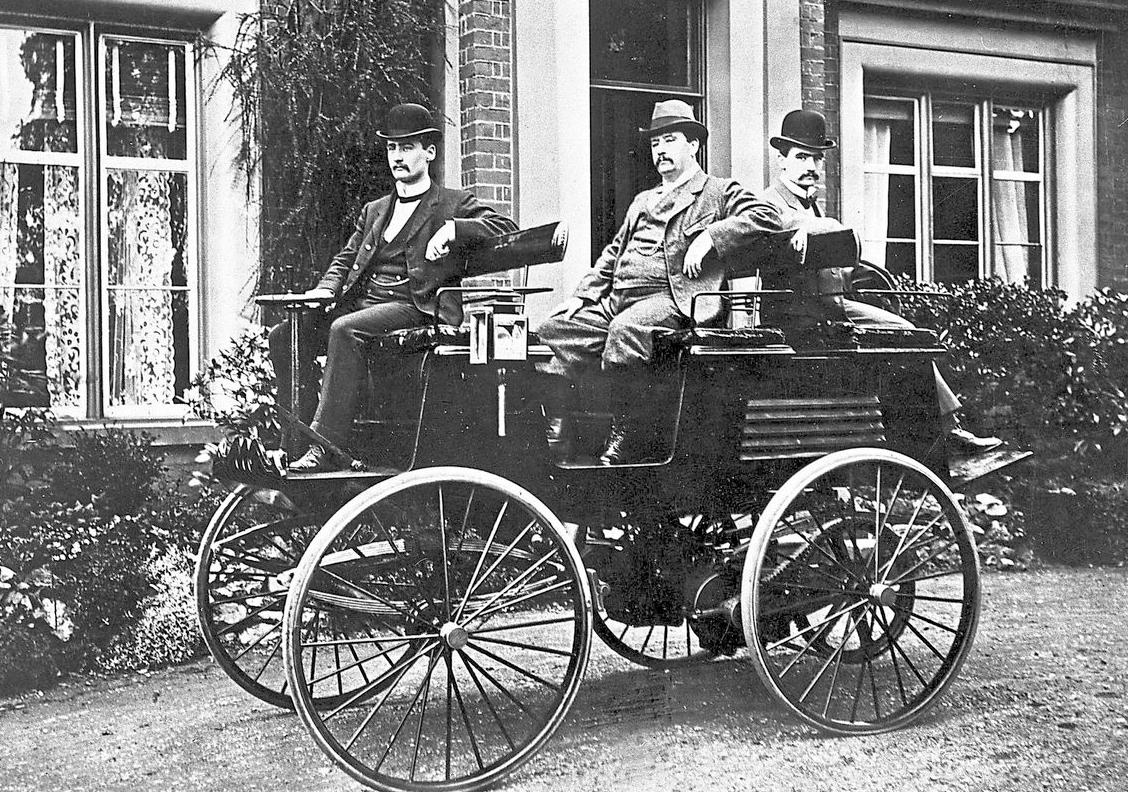
hile the idea of an electric car originated in the office of a Hungarian inventor, Ányos Jedlik, in 1828, it wasn’t until Thomas Parker built the first EV in London in 1884 that the idea was catapulted into the automotive industry. The idea made its way to the US where, around 1889 to 1891, William Roberts developed a simple wagon that would utilise electric propulsion.

“WHEN

Let ’ s hear it for the ‘ sp elunkers ’ the heroic subterranean explorers of the 1970s And the inspiration b ehind ‘GMT explorer ’ watches, which provided 24 hour timekeeping for light star ved cavers Now we ’ ve resurrec ted the genre with the C63 Sealander GMT Not only do es it b o ast a twin timezone movement, a hi vis 24 hour hand and a dial that ’ s as legible as it is beautiful, but you don’ t have to be a sp elunker to wear one Want to know more? D o your rese arch.






EV platforms come in slightly different forms depending on the manufacturer, but, in essence, they provide the chassis for any EV in the company’s range. The platform houses many of the components required to operate an EV, including the wheels and powertrain, motor, suspension and batteries.
Similar to a conventional chassis, the EV platform can be applied to multiple vehicles, but provides great benefits for extending a vehicle and incorporating more batteries for a higher power capacity and more range.
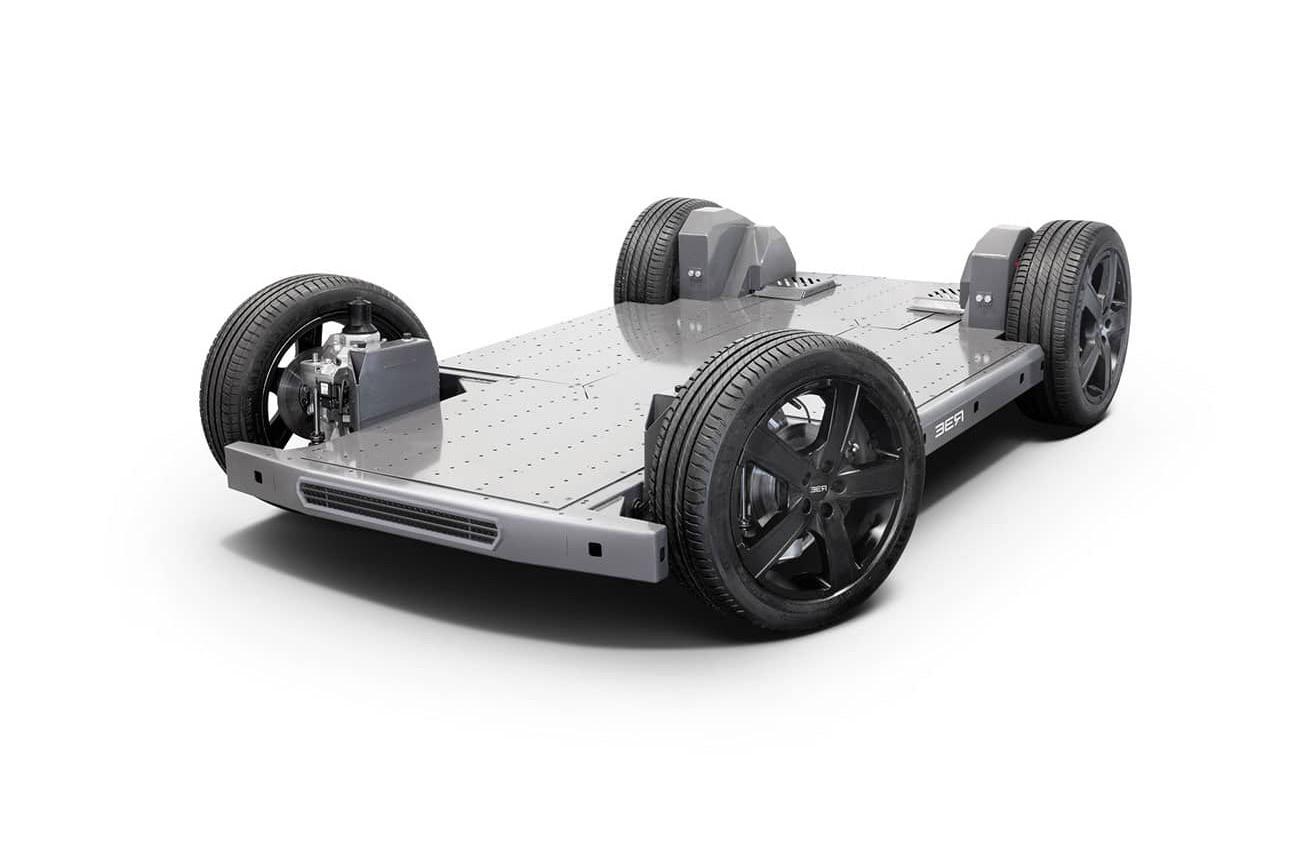
Organisations like General Motors, Rivian Automotive, REE Automotive are developing, or already have, their own version of the EV platform—and many more organisations are taking this route into the EV market.
However, REE Automotive showcases some of the best innovation yet with the REEcorner, which provides a motor for each wheel to create a more compact platform and allow more space for the vehicle body.
One of the main differentiators between original equipment manufacturers (OEMs) is the platform. But what is it?

 by Tom Swallow
by Tom Swallow
The high-end automotive industry is one that showcases the luxury and performance that can be achieved when modern engineering is combined with technology. With cars costing millions and reaching speeds of more than 200mph on the track, the fossil fuel-powered industry is one that will undoubtedly be missed by lovers of roaring V8 engines and 12-cylinder-screams of petrolpowered hypercars.
Why will it be missed? Where is the industry going? Electrification is cleaning up the industry. Petrol and diesel are expected to fold, allowing sustainable propulsion solutions to take over. It’s already happening as high-end vehicle manufacturers redesign luxury with sustainable materials and reimagine speed with the latest innovation in batteryelectric power. New companies are making their mark while existing organisations are reevaluating what the supercar means.
This isn’t just a major shift for the buyers of such powerful machines; it affects the manufacturing processes and skills required to develop such vehicles, too. As a result, automotive manufacturers are shifting their focus from traditional engineering operations to autonomy and innovation, leveraging technology and data to create supercars like we’ve never seen before.
One of the major catalysts of electric supercars— and the producer of the first to hit the streets—Rimac Automobili is now one of the biggest-name car

Before we know it, fuel-powered supercars will be monuments of the past, but electrification doesn’t mean compromise for drivers or their manufacturers
One of the car’s main features is the Rimac All Wheel Torque Vectoring System, an intelligent solution developed in-house to ensure safety and stability of the car at speed, as well as efficiency when it’s needed. Although an incredibly attractive supercar, every inch of its design is optimised for performance, with it also featuring the statutory electronic rear wing.
WATCH Croatia 1,914hp 1.5 seconds 0-60mph 258mph 287 miles



manufacturers, having delivered the first finished Nevera to former Mercedes-AMG Petronas Formula One driver Nico Rosberg. The car showcases years of revision and technical innovation and, through doing so, the company expanded its operations as the Rimac Group, releasing Rimac Technology as a separate entity under the company’s ownership.
Not only does the organisation showcase the best of EV innovation, but it also emphasises partnerships for facilitating the switch to all-electric. In the process of making the Nevera, Rimac Technology is also known to have worked with other original equipment manufacturers (OEMs), including Porsche, Hyundai, Kia, CUPRA, Automobili Pininfarina—an Italian carmaker founded in 1930—Koenigsegg and Aston Martin.

There is an interesting discussion to be had around supercars versus hypercars and what it is that differentiates them. By definition, any car achieving 1,000 brake horsepower (bhp) is classed as a supercar, but the EV models in this category far exceed the norm.
Not just that, but all of the electric supercars in development in 2022 almost meet, if not exceed, the 2,000bhp mark, which is one of the greatest characteristics of EV. Achieving high levels of torque with a single gear ratio makes acceleration the unique selling point of an electric supercar—beyond their zero-emission capability. Lotus is one organisation that has not only developed a car of this calibre, but is making the transition away from a traditional, fuelpowered racing history.

With development and testing facilities based in Norfolk, UK, Lotus Cars is known for manufacturing small, nimble road cars designed with track racing heritage.

One of two EV offerings, the Lotus Evija defies all preconceptions of electric propulsion and leverages a hyper-ventilated body moulding into its sleek design to achieve ‘break-neck’ speed. It’s certainly built for those who love to drive and shows that exponential speed can be achieved through electrification. Racetrack handling, as well as efficiency benefits, are enhanced as well.
Through its Vision80 strategy, created in 2018, Lotus has mapped out its transformation to all-electric, which is scheduled for completion by the company’s 80th birthday in 2028—allowing the company to strategise 10 years ahead of its current operations.
“The global transformation of Lotus is progressing on track and in tandem with the global transformation of the automotive industry to electrified powertrains,” says Matt Windle, Group VP and Managing Director of Lotus Cars.
"NOW MORE THAN EVER, AS WE TRANSFORM TO BECOME A GLOBAL PIONEER OF ELECTRIC PERFORMANCE VEHICLES, WE RECOGNISE OUR RESPONSIBILITY TO DO SO IN WAYS THAT LEAD OUR INDUSTRY IN MINIMISING ITS IMPACT ON THE ENVIRONMENT”
MATT WINDLE, GROUP VP AND MANAGING DIRECTOR OF LOTUS CARS.
England 2,000hp (expected)
WATCH
Propelling motorsports heritage into the future, the Lotus Evija showcases the capabilities of Lotus Cars as a manufacturer of performance vehicles. While yet to roll off the production line, the vehicle is expected to reach high speeds and achieve a battery range that makes it a viable option for more than just tearing around the track.
“Through Vision80, we have the opportunity to deliver pioneering vehicles that showcase everything that’s great about Lotus: the technical innovations, the commitment to excellence, the outstanding quality and the beautiful new cars that are on the way.”

“We’ve just launched one SUV, the Eletre, and we’ve already announced that another is coming, plus a four-door performance saloon and a new sports car. All of these vehicles will be pure electric, and will have ‘Lotusness’ at their core – that means outstanding ride and handling, amazing performance, optimised aerodynamics for maximum efficiency and stunning design,” says Windle.
Slowing climate change while speeding up mobility Supercar innovation these days represents something more than just power-hungry vehicles and immense speed. At a time when consumers are slowly coming around to the idea of sustainability, electric supercars are prime examples of the fun
to be had with low or no contribution to greenhouse gas (GHG) emissions vehicles.
Many drivers are conditioned by the senses, meaning that the sound, smell and feel of a fuel-powered vehicle all represent speed; however, the pace at which the EV industry is changing opens up alternative benefits to drivers, particularly those with deep pockets and a sustainability conscience.
“Now more than ever, as we transform to become a global pioneer of electric performance vehicles, we recognise our responsibility to do so in ways that lead our industry in minimising its impact on the environment,” says Windle.

The climate impact of electric supercars is now measured in a different way, as OEMs
consider the emissions they produce from manufacturing, the sustainability of their suppliers and the circularity of their vehicles. As such, the development of high-end, highperformance vehicles in a more sustainable way acts as a benchmark for the massproduction of vehicles.
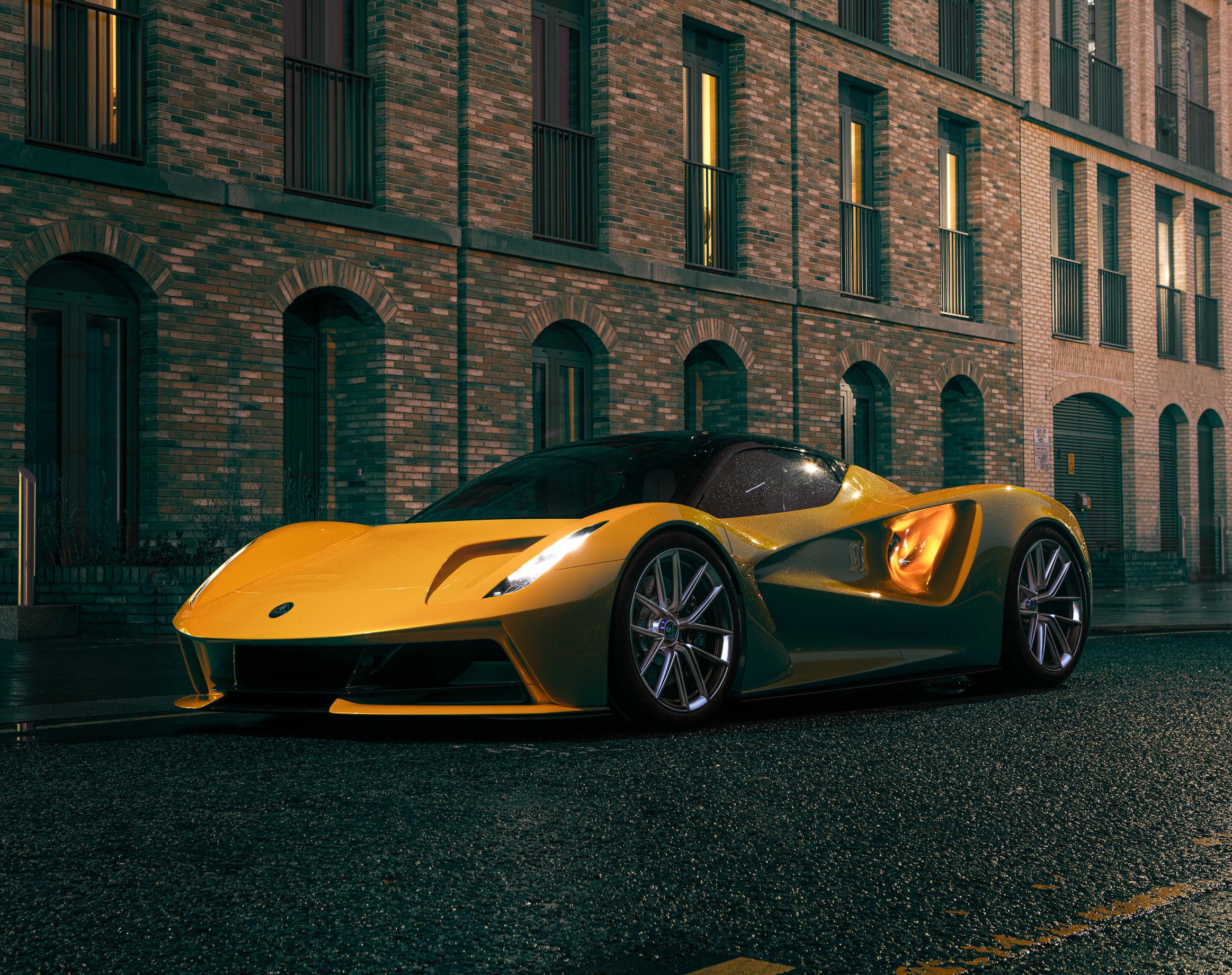

In July-2022 at the Automobili Pininfarina design, engineering and development hub in Cambiano, Italy, the electrified hypercar entered production, marking the Italian firm’s contribution to the electric vehicles industry in style. The company’s goal is to provide a new level of luxury while harnessing the essence of the country’s automotive industry. The car utilises the technology firm's innovative components, with Pininfarina restructuring the front and rear of the car, including the exterior image, tuning of its suspension, and bespoke tyres.

Born from a division of Vanda Electrics, the Dendrobium D-1 marks the Singaporebased company’s shuffle into the automotive industry around 2017. Following two public appearances with the hypercar, the company has since gone quiet, but pictures still float around the internet. Since its sighting at the 24 Hours of Le Mans race, there has been much speculation around whether the dynamically designed vehicle will make it back into the public eye.
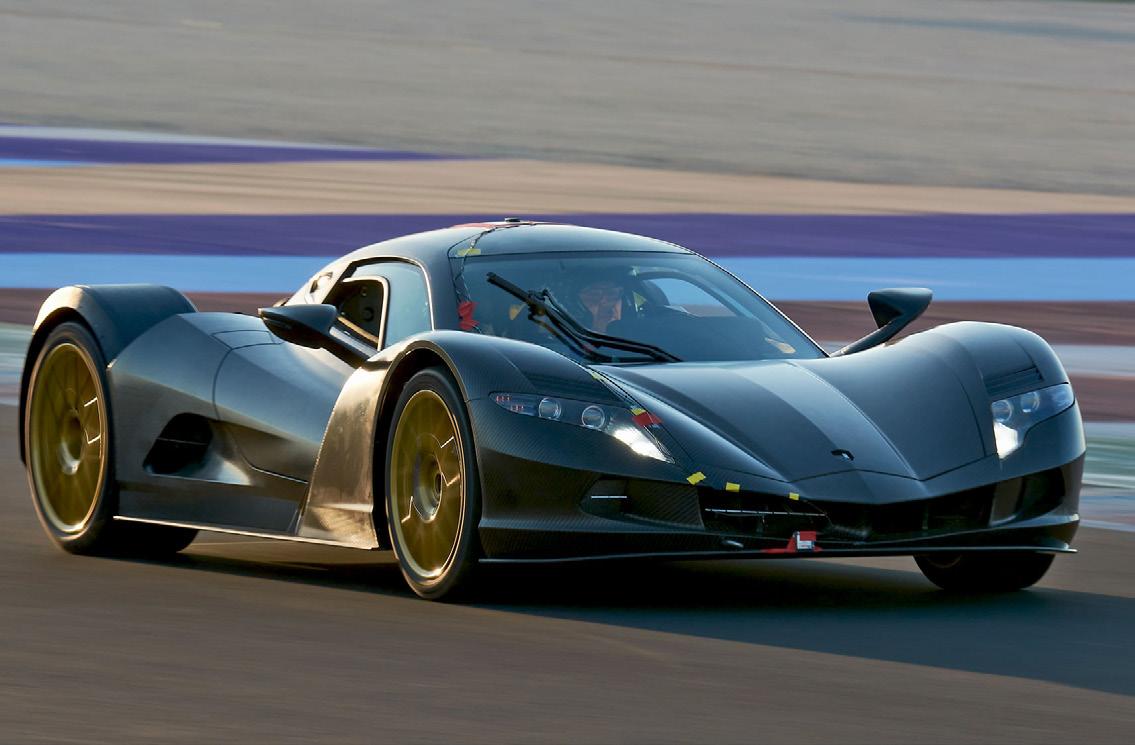
Japan is one of the leading countries for lean manufacturing and one of its local automotive companies founded in 2005. Aspark created the Owl, which was shown for the first time at Frankfurt Autoshow in 2017. As the fastest fully-electric car on the market, it achieves zero to 60mph in 1.69 seconds—and you can certainly see why when looking at the design and configuration of the EV. Despite its immense speed, the company has focused branding on the car’s luxurious feel, with its ‘soft exterior, crossed with tension’.
THE INTERNET OF THINGS IS EMBEDDED IN OUR DAILY DOSAGE OF DIGITAL DEVICES, BUT WHAT HAPPENS WHEN IT’S INTEGRATED INTO EVs? IT CONNECTS EVERYTHING

The automotive industry has been exciting from day one. From the moment the engine was cranked for the first time to the introduction of the radio, followed by bluetooth connectivity and satellite navigation, and now integration with almost everything that the consumer owns.
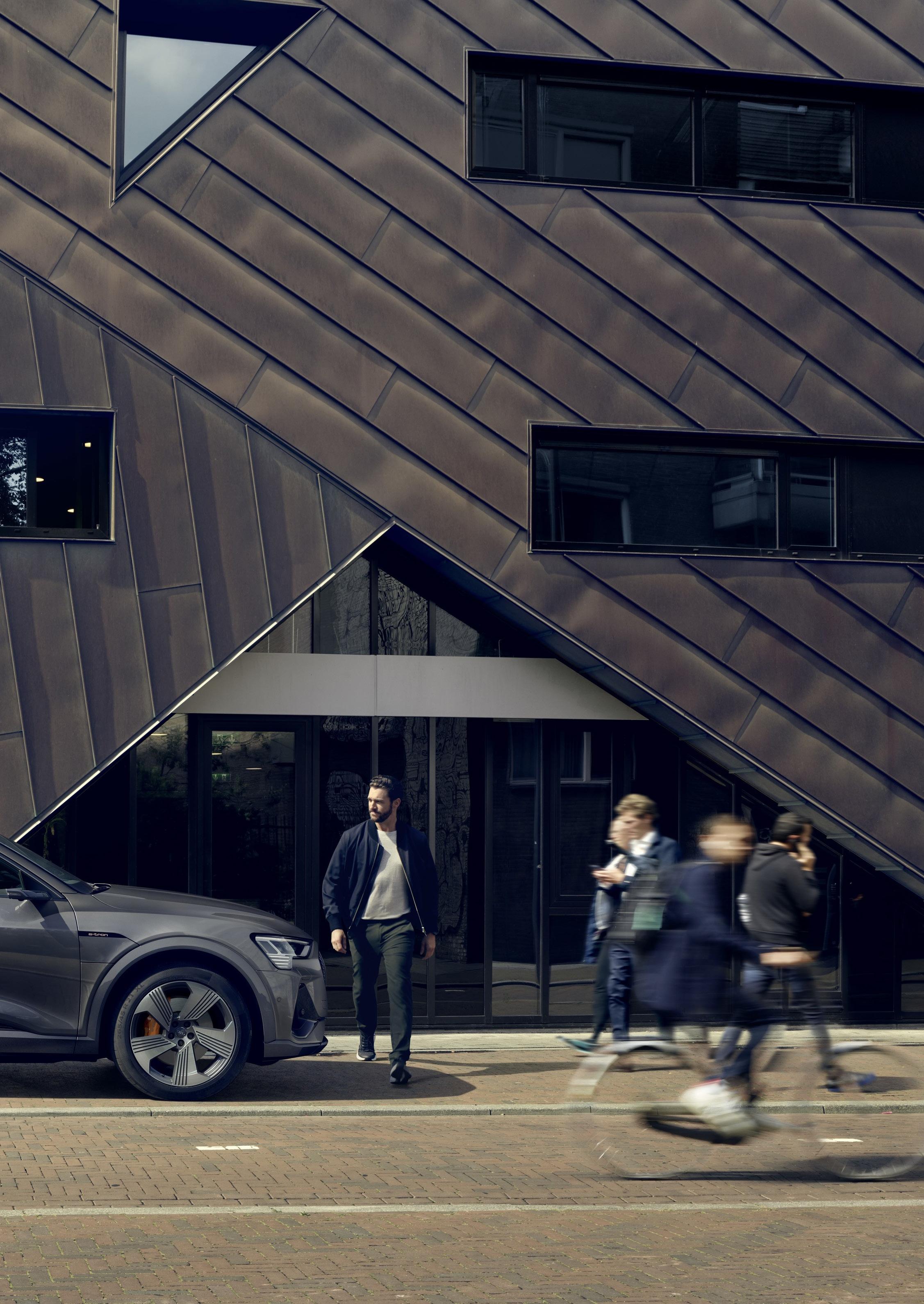
Much in the way of phones, tablets or laptops, cars are connecting to the world around them to enable more capabilities than ever—particularly as everything else in their homes, at the shops and on highways is becoming digital, too.
The internet of things (IoT) enables individuals to share data between multiple digital devices and even turn on the lights and the heating before they arrive home from work, all thanks to the use of big data and 4G—soon to be 5G—connectivity, the two digital fabrics that provide insights, and enable people and machines to share those insights.
But, consider your car in the same way that you would your phone, and this provides even further benefits in terms of driving efficiency, convenience and safety. The term ‘Connected Car’ is one to watch as more consumers are drawn to it already—and it will only get better.

In short, Connected Car means enabling vehicles the ability to communicate through a network to deliver multiple services, making it a device that leverages the capabilities provided by the IoT.
While this has gained prominence in the era of electric vehicles (EVs), Connected Car solutions have been developing for a while. General Motors (GM) and Motorola were quick to the mark, integrating the OnStar solution into the GM Cadillac DeVille, Seville and Eldorado as a safety mechanism for drivers that required assistance in the event of an accident.
The internal combustion (ICE) vehicle industry somewhat acted as a testbed for the solutions that EVs are now leveraging through initial integration in the development stage. As explained by Vodafone’s Connected Mobility Senior Product Manager, David Brown, connected car solutions are now enabled much earlier in the development process and enable more services in cars—from multimedia to vehicle software updates and monitoring for efficiency and maintenance updates.
“Because the connected car concept existed before the EV, EVs have effectively been built from the ground up with two focuses: software and connected car,” says


Brown. “As a result, EVs give priority to in-car experience, which is enriched by connected car capabilities, rather than having it as an add-on to an ICE vehicle.”
Much like phones, 5G connectivity is one of the key enablers of connected car solutions, bridging the gap between smartphones and electric cars.
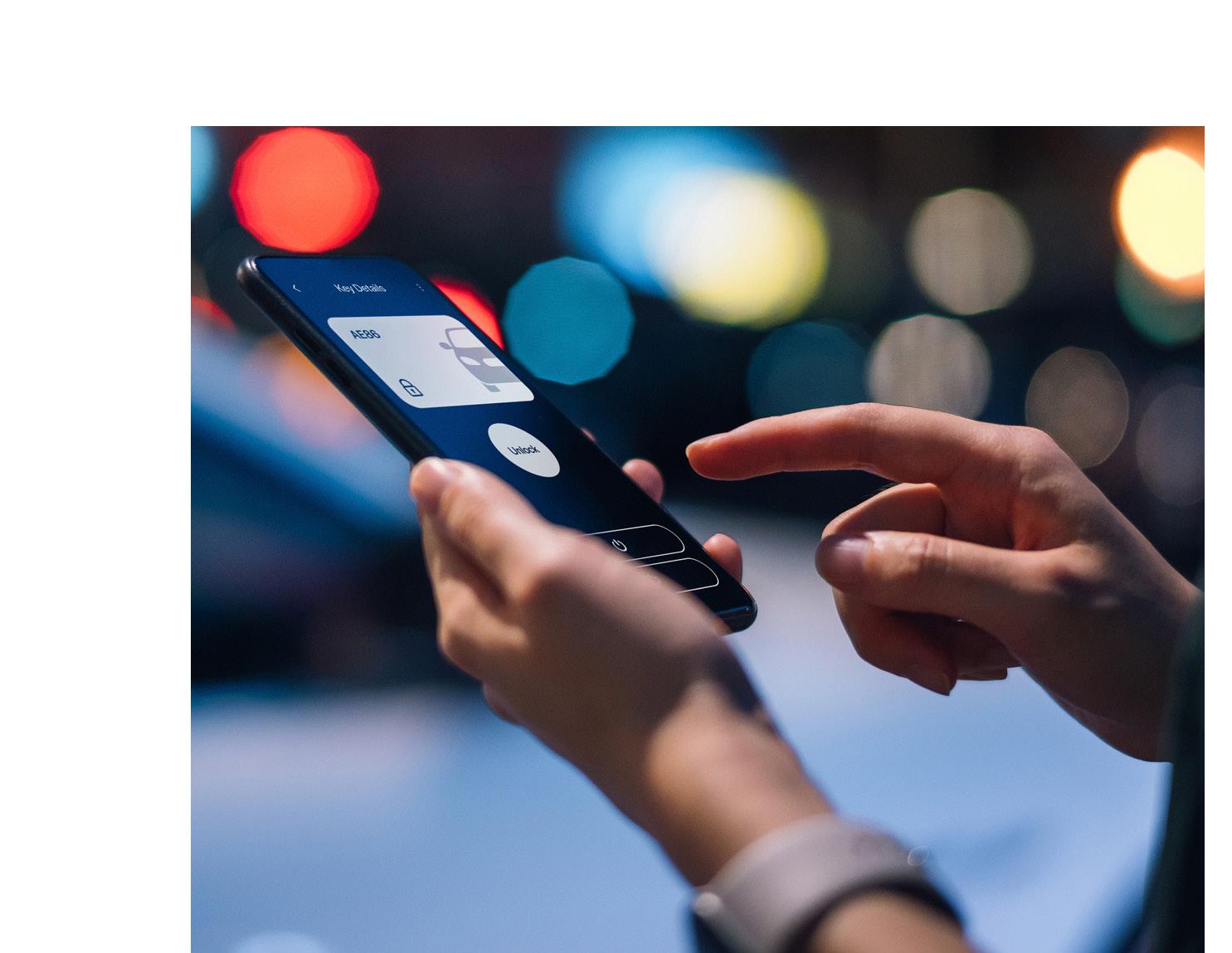
“The same network we use for our smartphones also allows the vehicle to communicate, albeit specially designed for optimum data transfer. Most recently, we are seeing vehicles connected using 5G, which allows for lower latency,” Brown notes.
A great example of how an automotive original equipment manufacturer (OEM) has used Connected Car is Tesla’s sentry mode function—an anti-theft application that detects suspicious activity, creating a continuous record and stream from its on-board camera. The most commonly used solution—and one that can only be seen in the EV industry—is charging status.
EV drivers are able to check the level of battery they have in their vehicle from their phones, allowing them to continue
"EVs GIVE PRIORITY TO IN-CAR EXPERIENCE, WHICH IS ENRICHED BY CONNECTED CAR CAPABILITIES, RATHER THAN HAVING IT AS AN ADD-ON TO AN ICE VEHICLE"
with their daily regime while the car does all the work. All they have to do is plug-in and unplug their car, and create a charging schedule.
While these innovations are great, they only mark the beginning. The future of Connected Car will see EVs share realtime insights with the world around them to unlock more functions that make owning a car much more convenient. Vodafone Automotive is the arm of the telecommunications provider that is working to make the use of automobiles safer and more secure, both physically and digitally. On the road, Connected Car is already supporting drivers in adapting their behaviours and saving them money on their insurance. Alternatively, Vodafone
solutions have been instrumental in recovering thousands of stolen cars each year.
The next step for the industry—one that Vodafone Automotive will take—is Cellular vehicle-to-everything (C-V2X) communication, which connects vehicles to…well, everything. The vision incorporates cars, businesses, buildings, road infrastructure and charging, also spanning e-scooters, e-bikes and even pedestrians.
“C-V2X communication is enabling, through multi-vehicle connections, the development of collaborative intelligent transport systems (C-ITS) with the aim of
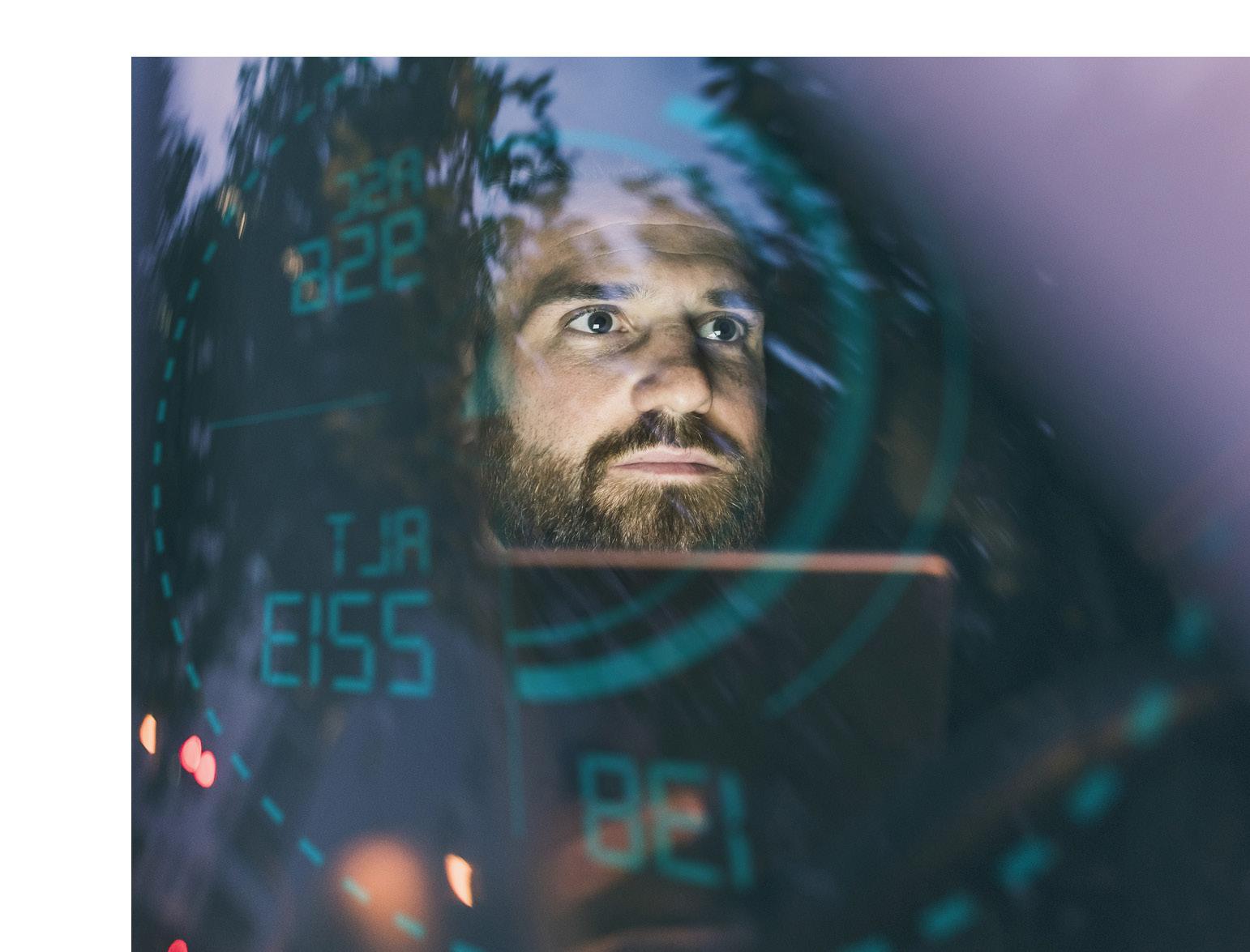

As one of the largest global telecommunications firms, Vodafone is now dedicated to the next generation of connectivity—Connected Car. As an arm of Vodafone Group, the company’s commitment to automotive is a statement of safety and innovation as the organisation plays its part in preparation for a future not limited by mobility.
Solutions by Vodafone Automotive enable benefits among consumers, but are directed towards automotive specialists, fleet managers, insurance firms and the vehicle manufacturers that will integrate its connected solutions in their upcoming EVs.
Its platform enables vehicle-to-everything (V2X) capabilities, meaning connectivity between cars and the environment around them to enable safer, more efficient use of automobiles.

reducing congestion, pollution and making roads safer for all users,” says Brown.
“In addition, rather than manage the charging of your vehicle through an app, you could use it to define the transfer of energy from your vehicle to the house as energy networks become more advanced in the coming years.” This describes where we could expect to see bi-directional charging applied in the future, making energy saving easier for drivers by allowing them to distribute energy to their homes and other electrical devices.
“This supports the EU ambition to halve the number of fatalities and serious injuries on European roads by 2030, as a milestone on the way to ‘Vision Zero’—zero fatalities and serious injuries by 2050.”
Along with readily available solutions, Connected Car assists drivers in planning
routes that incorporate charging stops, and has the potential to support the roll out of vehicle hiring services.
As a multifaceted business with B2B connections, Vodafone is also wellpositioned to apply its technologies across organisations, as well as supporting governments and local authorities with

their e-mobility plans. The company provides Business Fleet Analytics to drive adoption of commercial fleets while supporting them with asset management solutions.
A further platform by the company is its Safe Transport for Europe Platform (STEP), which is designed to integrate multiple organisations, such as governments, transport authorities, automotive manufacturers, mobility service providers and other network providers. This offers the ability to manage data for safety applications and share it with road users.
“The automotive industry is changing gear, with technology at the heart of its transformation,” says Brown. “Our role in this transformation over more than 20 years has been to harness data and technology to improve safety, security and access to mobility.”
"THE AUTOMOTIVE INDUSTRY IS CHANGING GEAR, WITH TECHNOLOGY AT THE HEART OF ITS TRANSFORMATION"
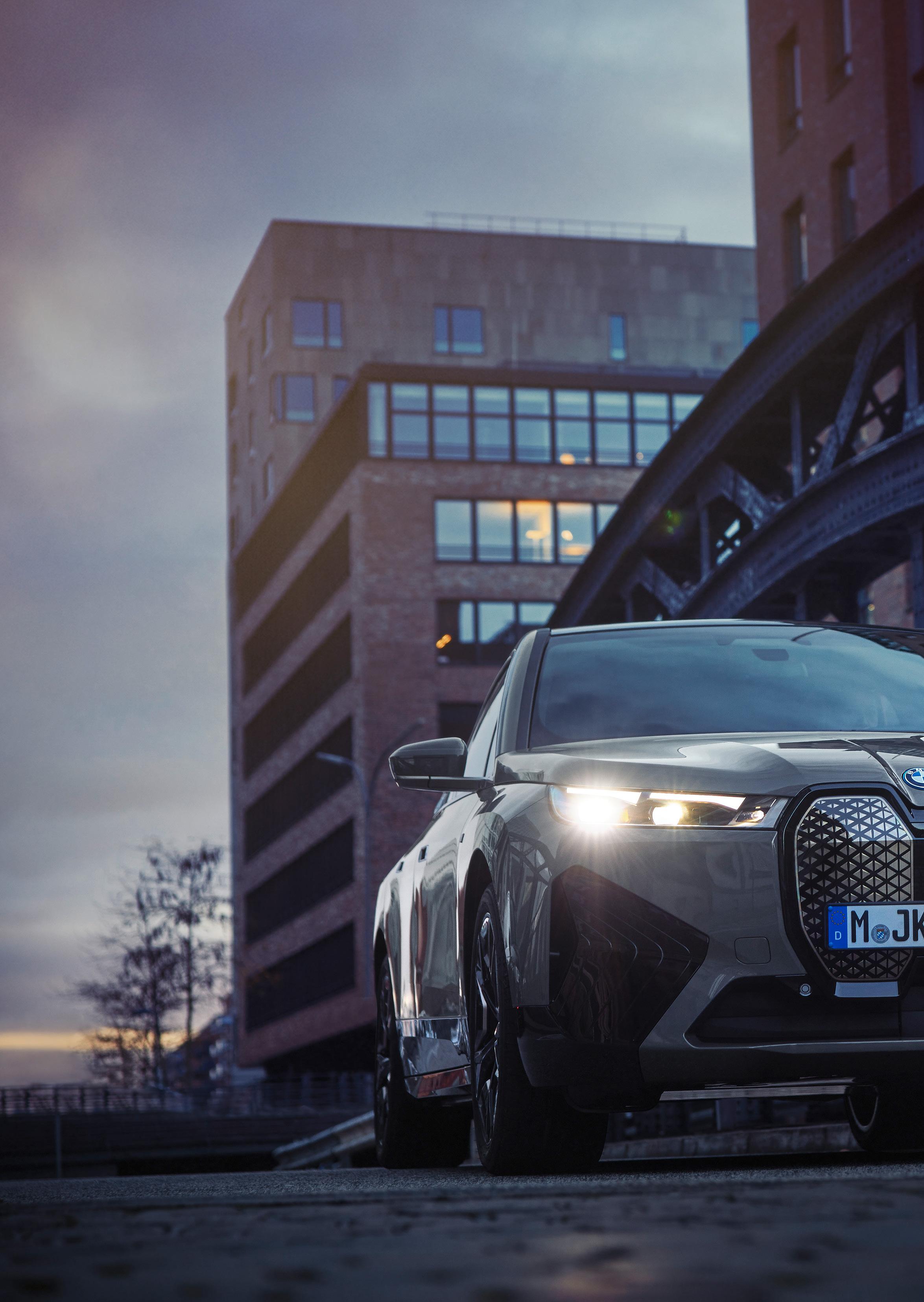
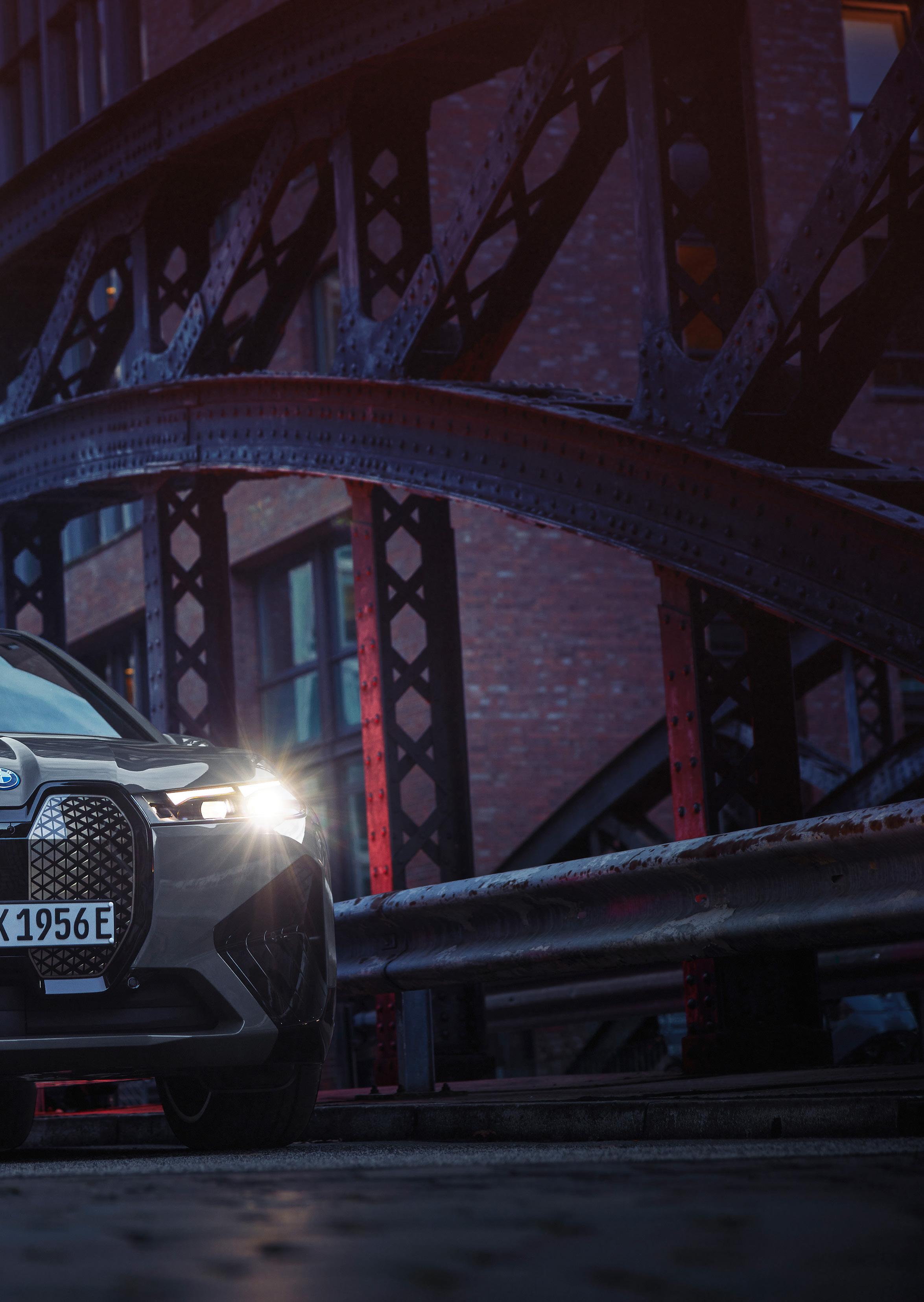
The electric vehicle (EV) industry has excelled in terms of battery range and charging facilities. The early adopters of electric witnessed the initial mains power method, by which they would plug their cars directly into a standard 240V socket. But, as range extends and more drivers want to take their EVs further—particularly as carmakers like Rivian and Lightyear promote the ability to take on new adventures through mobility— there is higher demand for roadside charging and dedicated power hubs.
Despite seeing a shift in sentiments towards electrification, advocates of fossil fuels compare the operation of EVs to a traditional model, whereby a car stops, fills up and leaves a station within five to 10 minutes. But the shift in power source creates a shift in mentality and, for many drivers, it’s a chance to be more sustainable and embrace a new way of life.
Historically, developments took place as a form of rapid response to the growing population, but also the changing economy. It cannot be stressed enough how urgently we must adapt to curb and reverse the effects of climate change and, with the transport industry accounting for around 25% to 30% of global greenhouse gas (GHG) emissions, there is no time for temporary actions influenced by the current landscape.
The effects of e-mobility are growing fast, but the real innovators are those that design and build the infrastructure required
to make EVs truly sustainable. These are the charging infrastructure providers, the developers of public charging stations and, most recently, electric forecourts that showcase how a future without fossil fuels might look.
Education is required in order to build a sustainable, electrified world, and it all starts with the battery.
As one of the more complex challenges in relation to traditional mobility, drivers have to really get to know their vehicles and how they work, including the effect different conditions will have on batteries. Those that
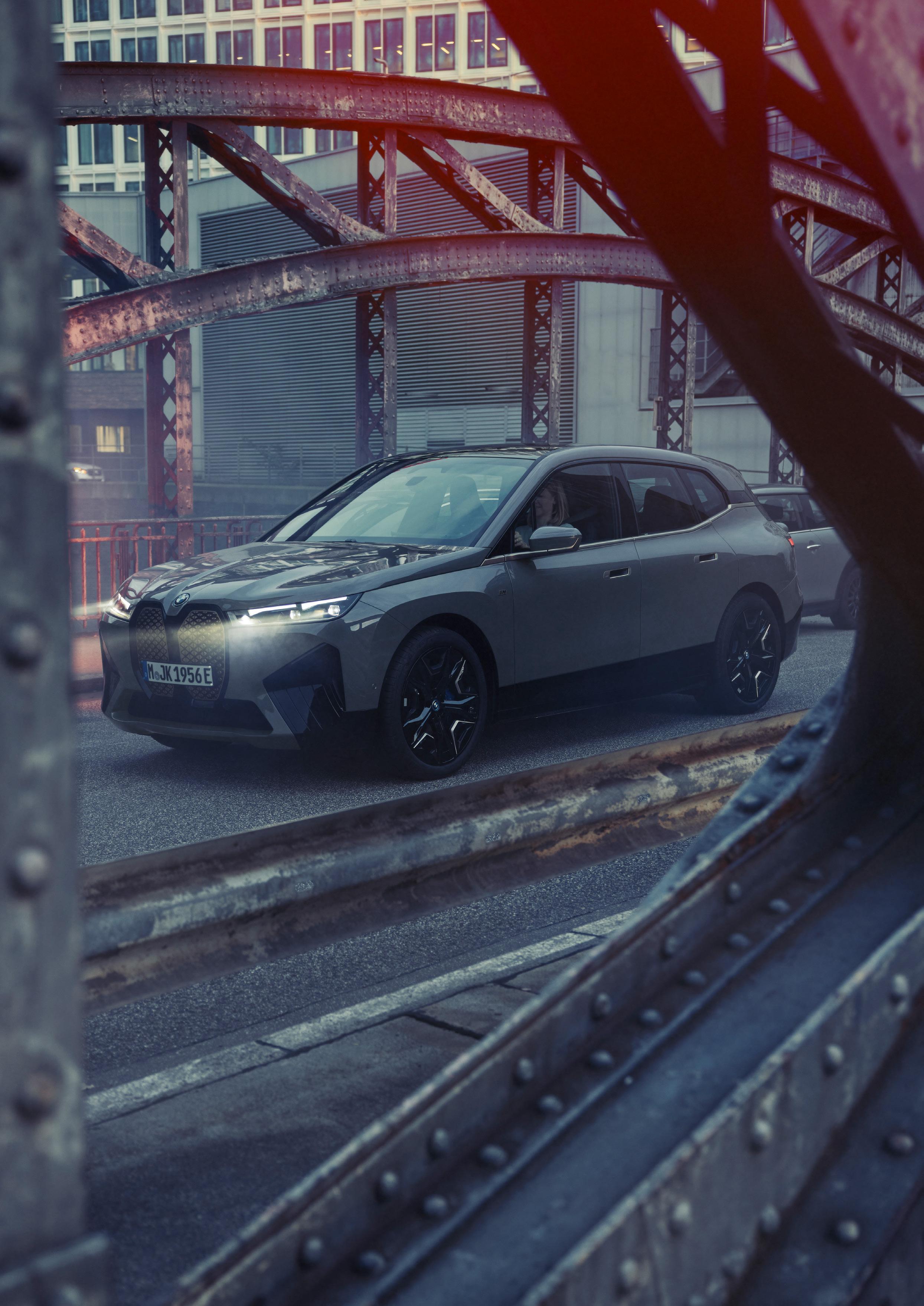
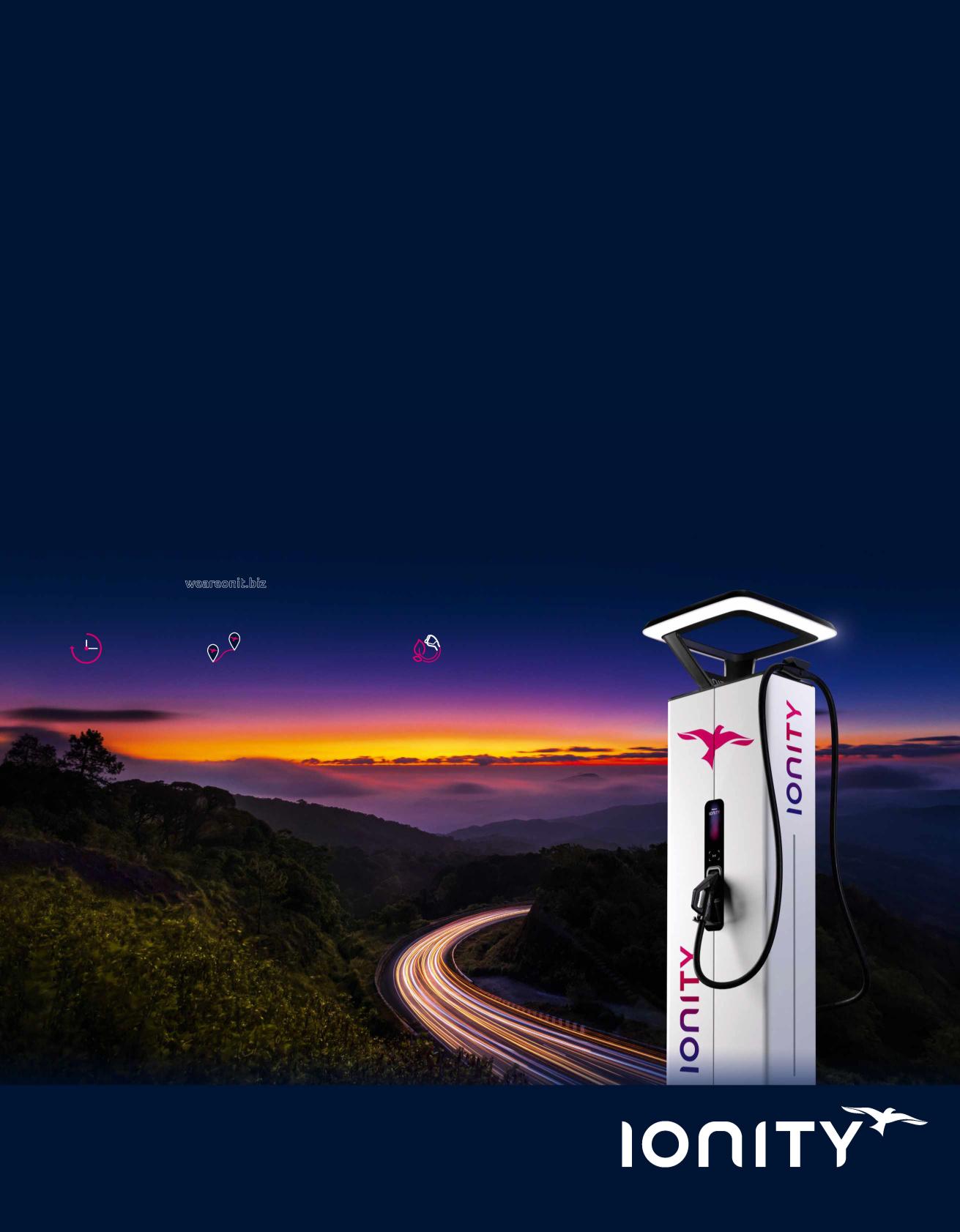
THE IX IS PICTURED IN HAMBURG WHICH BOASTS

678 CHARGING STATIONS
are tech savvy tend to understand the technology, but others may need further explanation—soon, the days of fuel selection will enter the history books and everyone will need to understand the various electrical factors involved in charging their cars, right from the start of the buying process.
The ability of consumers to understand battery capacity and power output, as well as chargers and their varying rates of energy transfer, will determine the success of the switch from a century-old process of choosing between petrol and diesel. Convenience is another factor that plays into this as, at present, charging is not able
to fulfil the same function as fuel stations across the board: charging times are longer and otherwise unreliable.
Cost being the lowest factor to prevent consumers from buying their first EV, the emphasis seems to be on infrastructure and the need for more charging solutions within the vicinity of their usual destinations. EY’s Mobility Consumer Index demonstrates this, with around 34% of its respondents being inhibited by the lack of charging stations along their travel routes or near their homes.
type of charging infrastructure available— for example, some EV providers’ vehicles will only charge at bespoke facilities, limiting choice due to availability.
The rate at which companies are able to install public charging stations is also a determining factor in consumer efforts to make the switch. The common phrase we hear every day is ‘range anxiety’, which is induced by unreliable charging facilities, not to mention a lack thereof.
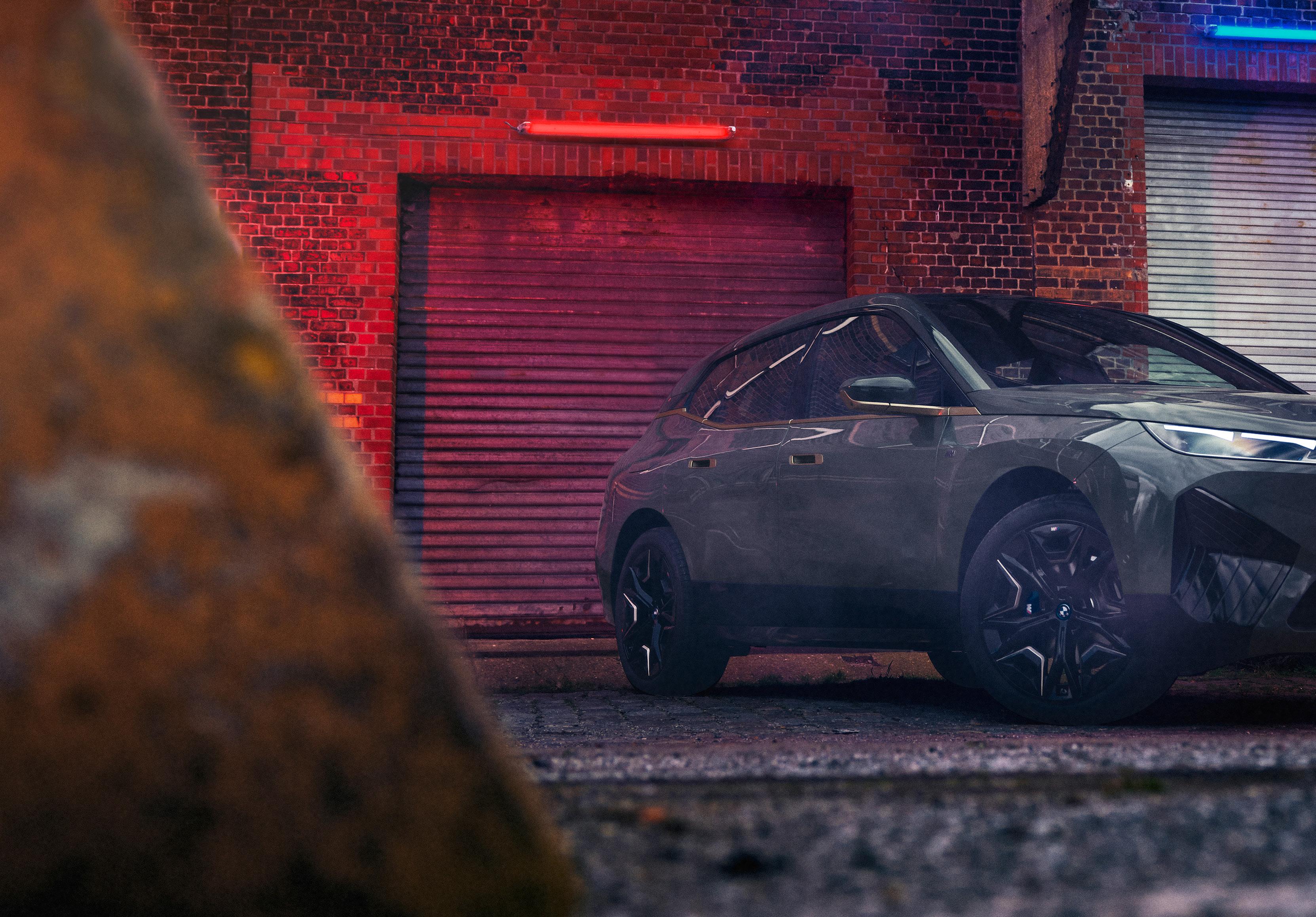
“The reliability of electricity supply is an issue in some markets, and unreliable electricity grids are obstacles to developing many kinds of infrastructure,” says Sam Clarke, Chief Vehicle Officer at GRIDSERVE.
“Too often, electric vehicle charging is installed in isolation, but we approach
holistically to support increased generation using abundant renewables (sun and wind are available globally), alongside the installation of EV charging infrastructure. This also speaks to issues around finance, as well as the need for further public and private investment to ensure the transition is possible.”
While organisations like BP, Shell, ChargePoint and GRIDSERVE are addressing this issue on a daily basis, there is still a lot of work to be done to ensure EV drivers can stop at a charging station and secure enough energy to get them to their destination.
“We have dramatically improved the GRIDSERVE Electric Highway network, charging over 100,000 EVs every month with zero-carbon energy,” says Clarke.
“GRIDSERVE has improved dependability, ease of use and the availability of chargers by upgrading over 160 charging locations with new chargers, while delivering an additional eight High Power Electric Super Hubs across the motorway network, alongside building a nationwide network of Electric Forecourts.”
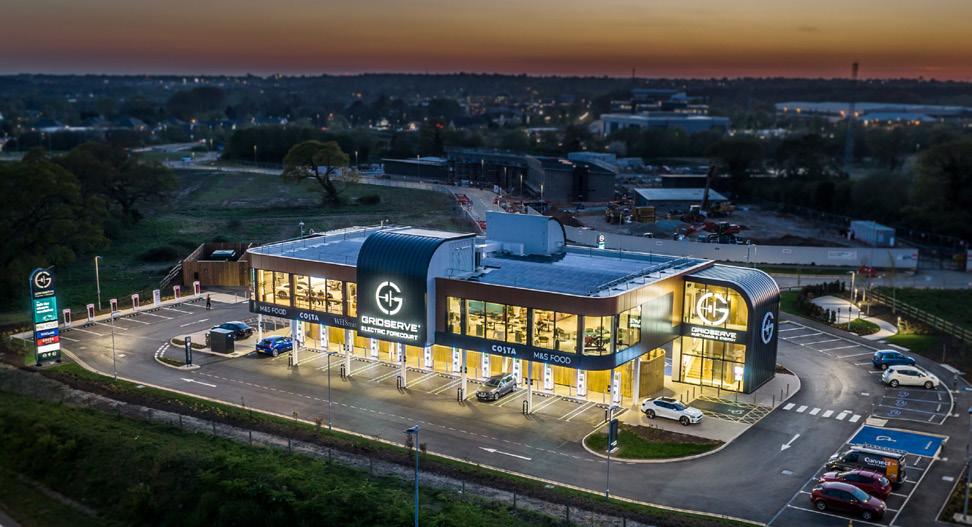

Referring back to the point about a mindset shift, it’s important for companies in the EV charging space to manage the expectations of consumers.
The company seemingly slipped under the radar until it launched its first-ever EV charging forecourt in Braintree, UK. Since the opening of the site, the company has gone on to open further facilities across the country sharing a new way of catering for EV drivers. Its charging network, known as the GRIDSERVE Electric Highway, consists of its standalone chargers and forecourts, providing electricity from 49p/kWh to 66p/kWh.
Supporting the Electric Highway is ABB, a major organisation in EV charging solutions as seen through its work with Formula E and in various other applications, like transport systems and home charging products.
The plan for the Electric Highway was cleared in June 2021 and involves the installation of 350kW charging stations, plus 300 rapid chargers at services along 85% of the UK’s motorways. The project will also result in the construction of 100 electric forecourts across the same area. All chargers in its network are designed to make charging more intuitive and convenient for drivers, enabling payments from all major providers, including Mastercard, Visa, American Express, Apple Pay and Google Pay.
GRIDSERVE has a foothold in solar energy and uses renewable sources to power its chargers, as well as offering bidirectional charging to push energy back into the grid. The company’s hybrid solar solution means it contributes significantly to energy capture while holding capacity for energy storage and mass power distribution. By leveraging both sides of each solar panel, GRIDSERVE is able to capture energy directly from the sun as well as the energy bounce

The charging network is ever growing, and organisations are developing ways to meet the needs of drivers as they take on a new form of mobility—also aligned with the current shift to remote working for many businesses.
GRIDSERVE’s electric forecourt provides a glimpse into the future as it develops inaugural facilities purely designed for charging, which also cater to business people and remote employees with amenities and connectivity available on site.

In fact, GRIDSERVE’s approach to e-mobility is to not only provide more charging options for drivers, but also to provide a suitable space for individuals to make the most of their charging times—the ultimate goal being that people also take time to recharge themselves.
Oliver Johnson, Lead of the E-Mobility Division at ABB in the UK, says: “They've been pioneering in some of the things they've done. They're building hub sites and forecourts with lots of chargers, which can really change things for people that don't have off street parking.”
The importance of accessibility to public charging isn’t an immediate conversation starter, but one that could pivot the adoption of EVs, particularly for those that live rurally or lack access to a dedicated charging port at home. The further GRIDSERVE’s network of charging hubs is spread across the country, the more likely consumers are to switch cars—the other major factor being the retail price of electrified models.
It’s projected that the partnership between ABB and GRIDSERVE will act as the groundwork for wider adoption of EVs.
“If you build one of these forecourts near a large metropolitan city, you can then change people's habits,” he continues. “I think some of those are pioneering aspects of what they're doing and they're putting large amounts of high power charges in, what I would call, the strategic road network in the UK.”
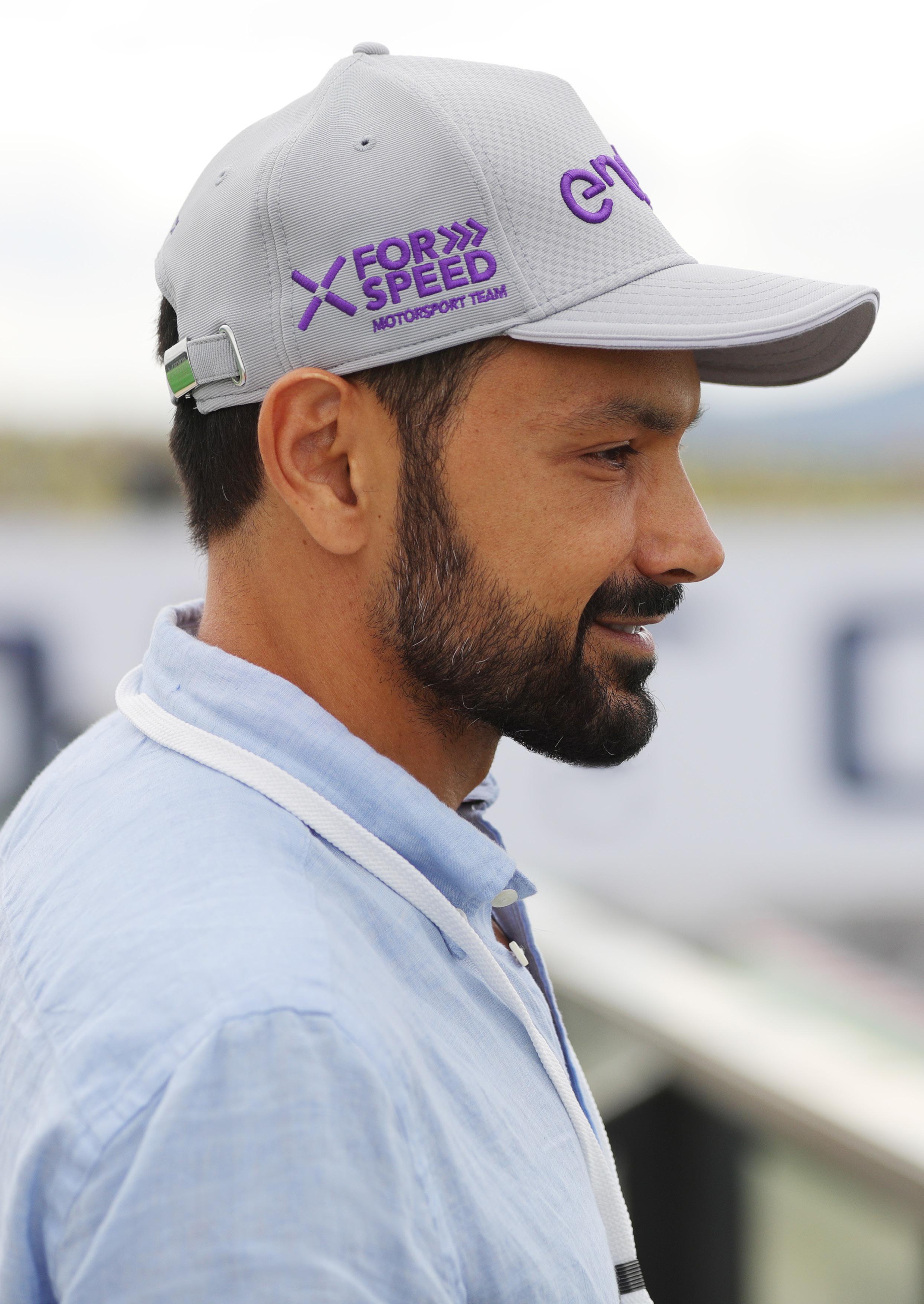

As a highly respected provider of innovative solutions – in areas of renewable energy, electric mobility and energy efficiency – Enel X is always striving to embrace the future and uphold its green credentials.
Sustainability clearly has a major impact on the company's image and reputation. Indeed, having open and honest discussions about the climate change situation is a fundamental element of Enel X’s agenda.
No one is more aware of the need to ‘walk the walk’ than the company’s Head of Sustainability, Nicola Tagliafierro. He reflects: “Of course, every company wants to talk about sustainability but it is very important from my perspective, to talk again about ‘effective sustainability’ – to avoid the situation of clearly green washing, or circular washing.”
The company believes in the importance of communicating the metrics in terms of environmental impact, but also social impact. Consequently, there are two directions of communication.
“Firstly, we focus on CO2 reduction, in terms of how many people are impacted and which communities are affected,” says Nicola. “At the same time, we need to be fair to the market, institutions and all stakeholders, by explaining the impact these initiatives have on the entire business, and not hiding behind small initiatives that do not represent the core business,” he adds.
In recent years, Enel X has been concentrating on ‘sustainability boosting’, which involves accelerating the sustainability of products, companies and even public administration. It is all intended to hasten and radically improve the level of sustainability, by analysing the current situation and – through the metrics – discovering areas where improvement can happen rapidly.
Nicola explains: “The sustainability boosting programme demonstrates that environmental aspects need to be covered through the circular economy. Our level can be significantly improved by sustainable input introduction, service models, life extension models, sharing strategies and widespread recycling.”
And Nicola knows that those new models can be extremely helpful in maximising the
“WE DON'T NEED TO BE AFRAID OF SAYING THAT BEHIND SUSTAINABILITY, THERE IS A BUSINESS. IN DOING SO, COMPANIES CAN KEEP REINVESTING IN NEW SUSTAINABILITY” NICOLA TAGLIAFIERRO, HEAD OF SUSTAINABILITY, ENEL X


use of Enel X products. Different models and perspectives allow the company to view them in an entirely different way.
Furthermore, Enel X's Sustainability Boosting Program looks at the situation also through the lens of social inclusion allows Enel X to select products and solutions in terms of usability, accessibility, functionality and understandability, while also allowing it to focus on specific communities of people and how solutions can galvanise their lives.
Nicola says: “For people that are experiencing disabilities, or people with different kinds of impairments or difficult economic conditions, we design and develop
"WE NEED TO MOVE AWAY FROM THE CONCEPT OF OFFSETTING, NOT BECAUSE WE DON’T BELIEVE IN PLANTING TREES, BUT BECAUSE WE NEED TO CONCENTRATE ON ACTUALLY REDUCING CARBON EMISSIONS"
specific solutions or we rethink how existing ones can be improved.
“We then find several small or big projects that can be applied to that particular solution, making those solutions more and more sustainable both in the process and in the final output.”
Enel X’s electric charging solution is a notable example of the company’s willingness to embrace sustainability. An internal material that was historically going to waste from another division of the company, is now being used as a plastic to build its recharging infrastructure and electric charging infrastructure.

The company is also transforming the lives of wheelchair users who can use ‘juiceability’ – a cable which allows an electric wheelchair to recharge during an individual’s journey, making shopping trips, visiting the gym or going to a restaurant much more straightforward.
Head of
INDUSTRY: Utilities LOCATION: ROME, Italy
Nicola Tagliafierro is, and has been since 2017, the Head of Sustainability in Enel X. In this role, he is responsible for Sustainability Worldwide Strategies, Circular Economy Portfolio Acceleration and Environmental Solution Development. He is the first Italian to be accepted, thanks to his strong commitment on Sustainability and Circular Economy innovative researches, in the prestigious Aspen Institute USA within the First Movers Program.
In 2000 he graduated in Economics and Business Management in Naples (Italy) with a Master Degree in Energy in 2003.
He started his experience in London in corporate finance for American company Utility Corp United and energy forecasting for Mott McDonald Group. He is also founder of an innovative start up, winner of

“Wheelchair users can use the same charging station as a car,” enthuses Nicola. “That's how we totally rethink the solution through the prism of sustainability.”
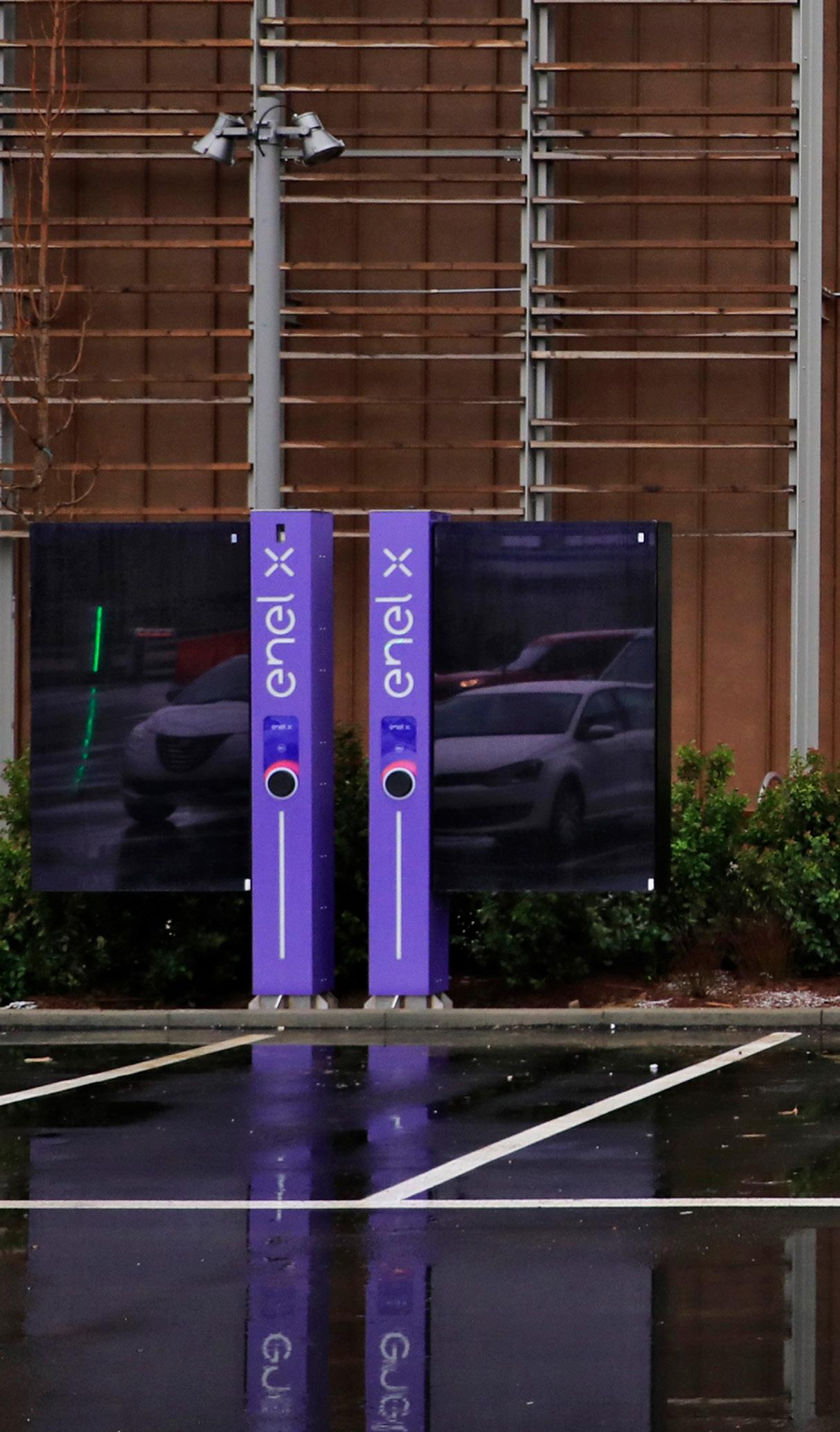
Enel X not only seeks to evolve through innovation; the company also strives to modernise sustainability itself.
Nicola says: “A lot of people become entrenched in an old approach to sustainability, such as a cost-based system or offsetting carbon emissions by planting trees. My view was very clear on this – we need to move away from the concept of offsetting, not because we don’t believe in planting trees, but because we need to concentrate on actually reducing carbon emissions. It’s this kind of logic that we are using to take employees with us.”
“This is why we are introducing circular economies – they have a powerful mechanism that generates incredible business opportunities. The company is already making a saving in terms of CO2, and when the business unit realised that we were saving costs, it sent out a very compelling message to the entire company,” he notes.
Consequently, different business lines of Enel X have been completely rethinking their processes, which has led to rebooted training, changes in communication and a widespread cultural shift across the company.
Digital love Digitalisation is one of the greatest milestones of positive sustainability – as Enel X is discovering. “I use digitalisation in all our
strategies,” insists Nicola. “Because digitalisation means dematerialising, and dematerialising means the use of less resources. Every area of the business which is able to reduce the use of resources is effectively supporting the sustainability drive.”
Digital also has another important role. Through the Internet of Things its devices and infrastructure have become much more smart – digitised instruction has meant a reduction in resources being used. It has also emphasised another important concept of sustainability, which is traceability. This is an essential cog in the overall circular economy mechanism.
Prolonging the life of a product is a top priority at Enel X and constructing alternative models to ensure they are even more durable for the future, is an ongoing project. “I can also improve the recycling and reusing phase, through traceability,” enthuses Nicola. “Digitalization is clearly one of the biggest allies of sustainability.”
Enel X is using a very innovative approach to the circular economy, which encourages its partners and clients to follow. Indeed, the company strives to support awareness of the circular economy throughout its supply chain and it has developed a series of critical
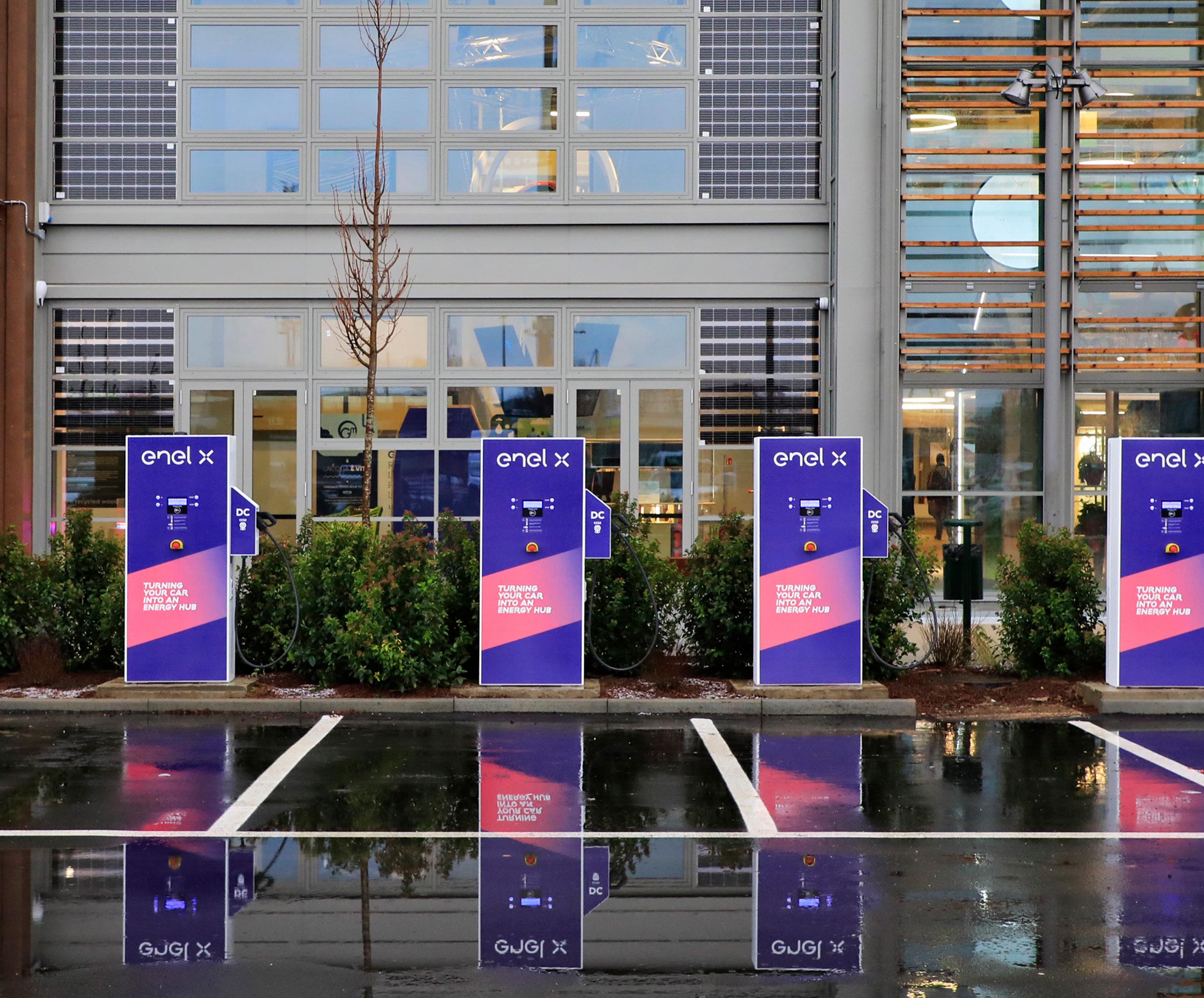

metrics and a report to help companies to progress sustainably.
“The report, which includes the monitoring of CO2 reductions and targets, presents an opportunity for companies to self-analyse and receive a certified score. We wanted to create a market standard to measure circular economy maturity which everyone could be able to use even independently,” explains Nicola

“We have developed in less than one year more than 150 circular economy reports for 150 different companies in Europe so far. Thanks to this approach, we are also able to calculate the savings that those companies can generate through our approach. Ultimately, there is a potential emission reduction of 32,000 tons of CO2 per year and also116,000 megawatt hours per year of energy saving.” We are planning to develop 4,000 circular economy reports in the next 4 years.
Diversity and inclusion is also a fundamental aspect of Enel X’s pathway. It is participating in the mission's Valuable 500 – a worldwide initiative with the aim of unleashing the enormous potential that could be generated from the inclusion of 1.3 billion people with disabilities around the world.
“This vision is totally in line with the target that Enel X has, both for employees and clients,” says Nicola. “This is why we are now looking at the programmes which are focusing on the accessibility of our services that boost inclusivity.”
Meanwhile, the company has also overseen the development of smarter assistance for COVID-19 patients during the
international pandemic. A telemedicine tool has assisted patients and monitored their health conditions in real time. It was unrolled at a hospital in Roma called Agostino Gemelli University Hospital with great success.
Enel X strongly believes in dynamic partnership working. Nicola says: “We know we're part of an ecosystem, so we have a holistic approach. It means we need to collaborate with all our stakeholders and this includes clients, suppliers, partners, experts and startups. All of them represent an important part of our business and all of them contribute to ‘innov-ability’ – a perfect match between innovation and sustainability.”

This year the company also joined CDP as a gold accredited renewable energy solution provider. “Being a gold member of this association is a clear proof of how we're committed to long-term sustainability.”
Enel X is also establishing important partnerships with local industrial associations. For example, in Italy, it is partnering with Confindustria, to spread the circular economy within the market and supporting companies in the application of sustainable innovative solutions. Moreover, to incentivise this market transition we collaborate with Confindustria to reward
companies participating in the ‘best performer in the circular economy’ with a special award for best energy circularity.
Furthermore, the company is changing gear by teaming up with MotoE and Formula E. “They're more than just a racing series because they really represent a battle for the future,” says Nicola. “People of every age can really test and understand the electric mobility revolution which is currently unfolding all around us.”
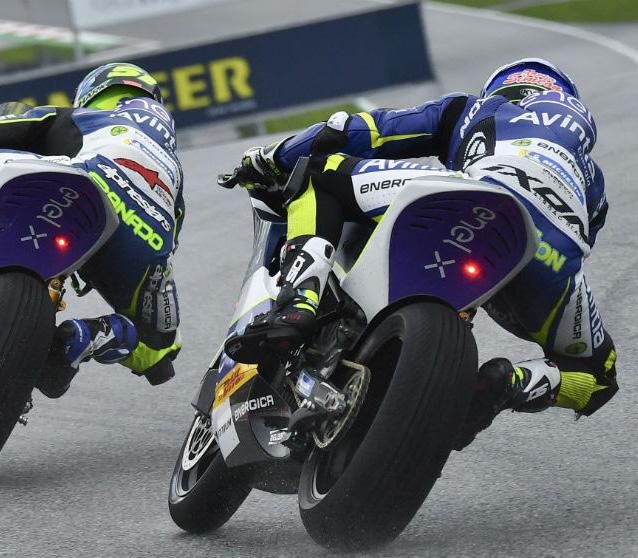 VISIT US
VISIT US



Everything in the world is interconnected. With the expansion of cities and growing populations comes the demand for more transport—all of which are proving unstable for the planet. The resulting climate crisis includes extreme weather patterns and high pollution levels, two major contributing factors to the need for electric vehicles.
Electrification is at the heart of modern inner city transportation and opens up more opportunities, but the main reason e-mobility is so critical is climate change. To meet climate demands across the globe— which includes curbing rising temperatures and environmental imbalances—batteryelectricity is deemed the most sustainable solution for growth.
Though charging and infrastructure have previously been overlooked, they have now become the primary focus of technology organisations and vehicle manufacturers. This shift requires advances in both technology and engineering, necessary steps in sustainability that can often be seen as a way to flex the capabilities of technology firms.
Electrification starts with infrastructure Electric vehicles have been an important marker on the horizon of the climate fight in recent years, marking a move away from
harmful fossil fuels, yet development and uptake have appeared relatively slow.
But what is the main barrier for consumers’ EV purchases? Range anxiety.
It’s the EV buzzword of 2022 and is seen as a markdown for the electric vehicles that are rolling off production lines faster than ever before. Research by Deloitte suggests that vehicle range was, and continues to be, the highest considered aspect of EV purchasing.
The consultant’s research shows that, in 2020, it was considered the greatest concern across France, Germany, Italy, the UK, China and the US, with figures varying between 22% and 33% of respondents. Second to this—but also inherently connected—is price.

As it stands, EVs are significantly more expensive than fuel-powered cars and to add to the cost, drivers much factor in the charges for setting up charging points at home, and if you think about it from a non-monetary value perspective, current public charging takes more time out of their days than it would to fuel-up a petrol or diesel vehicle.
But, this isn’t necessarily a fault that can be pinned on electrification as a form of power. Charging infrastructure, grid stability and energy sourcing play equal roles in the shift to electric, and ultimately the climate
contributions of the industry. As one of the most critical factors for EV drivers to go about their days, maintaining their usual frequencies of long-distance trips, charging infrastructure must catch up to align with the increasing adoption of EVs.
Putting this in the context of public transportation makes the argument much clearer, as the industry becomes more dependent on infrastructure to automate the network of individual vehicles roaming the streets.
From buses to boats, there is a lot of work going on behind the scenes to not only develop electric transport solutions, but to create a digital ecosystem resulting in a fleet approach to mobility in and around
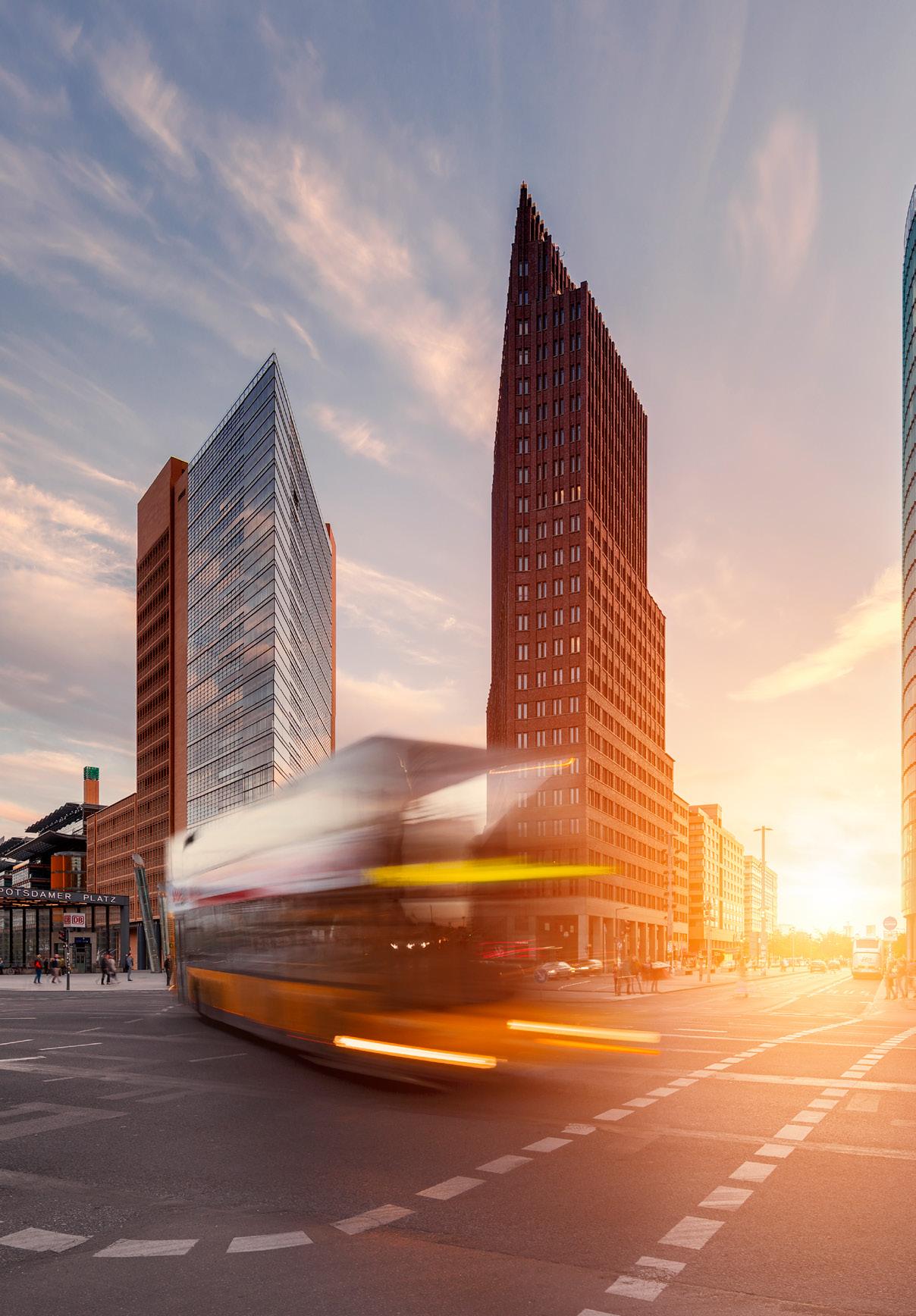
"FROM BUSES TO BOATS, THERE IS A LOT OF WORK GOING ON BEHIND THE SCENES TO NOT ONLY DEVELOP ELECTRIC TRANSPORT SOLUTIONS, BUT TO CREATE A DIGITAL ECOSYSTEM RESULTING IN A FLEET APPROACH TO MOBILITY IN AND AROUND CITIES"
As the Product Group Manager Traction Motors, IEC LV Motors Division, at ABB, Antti Matinlauri is heavily involved in solutions relating to transportation and heavy machinery. A sustainability advocate, Matinlauri has been with ABB since 2011 and has since driven the development and implementation of various products that contribute to sustainability.
Most recently, he’s focused on electrification and how ABB, as a technology and automated solutions provider, can adapt the way that heavy transport industries operate to incorporate electric propulsion and minimise the carbon footprint of the industry as a whole. ABB is contributing massively to this through its electrification strategy, reducing vehicle battery size and developing the next generation of transport infrastructure.
Proudly Finnish, Matinlauri moved to Switzerland to head up electric powertrain operations and deliver e-mobility support to Sweden, China and India.

cities. The applications of e-mobility can be seen in many facets of public transport, from electric taxis in London to the launch of electric buses. Public transport systems require a unique approach to electrification and infrastructure is a primary consideration for this.
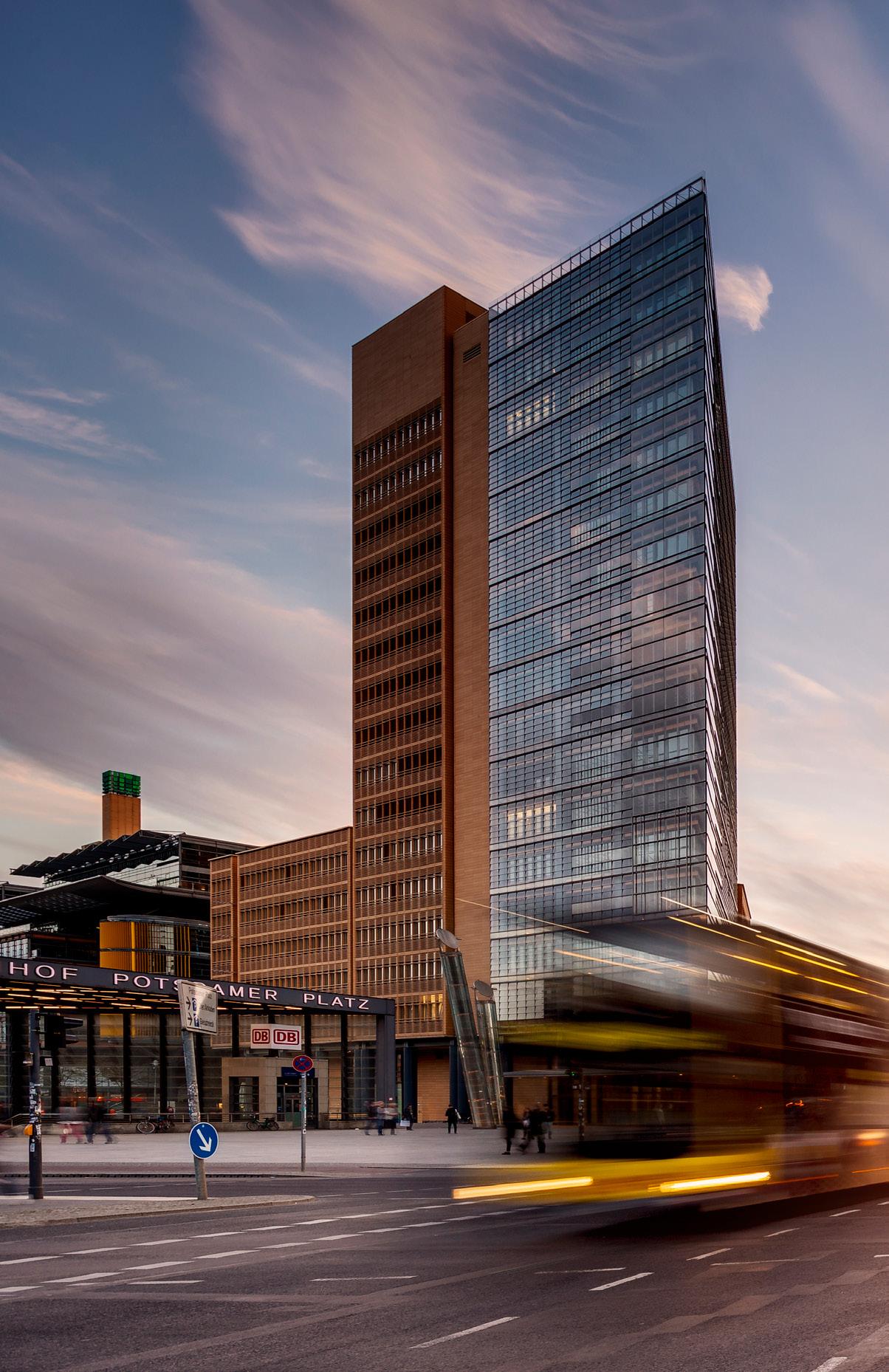
“Number one, electrification comes from the need to improve people's quality of life, particularly air quality. And I'm talking about nitrogen oxide and other local emissions,” says ABB’s Product Group Manager Traction Motors, IEC LV Motors Division, Antti Matinlauri.
“Number two, electrification is actually going to be cheaper to operate over time, as is the use of electrified buses and transportation instead of diesel power.”
One of the misconceptions of the EV industry is that the machines themselves must be entirely new. As an enabler of electrification, one of ABB’s most recent offerings addresses electrification from a different angle, in that it supplies a conversion solution for internal combustion engine (ICE) vehicles.
Matinlauri explains: “A case example of a system we created is called Nasta, which converges existing construction equipment into electric powered ones. Another good example can be seen in short-haul ferry connections. We are working with shipyards and operators to sell them battery or fuelcell powered ferry solutions to create point-to-point connections.”
One of the most urgent solutions in terms of public transport is e-buses—a primary solution for inner-city electrification. ABB is working closely with manufacturers to provide motors, batteries and fast-charging solutions...

"ELECTRIFICATION COMES FROM THE NEED TO IMPROVE PEOPLE'S QUALITY OF LIFE"
MATINLAURI ABB’S PRODUCT GROUP MANAGER TRACTION MOTORS, IEC LV MOTORS DIVISION

There are still challenges to overcome with EV adoption, but the motorcycle industry has a unique opportunity to leverage sustainable electric power
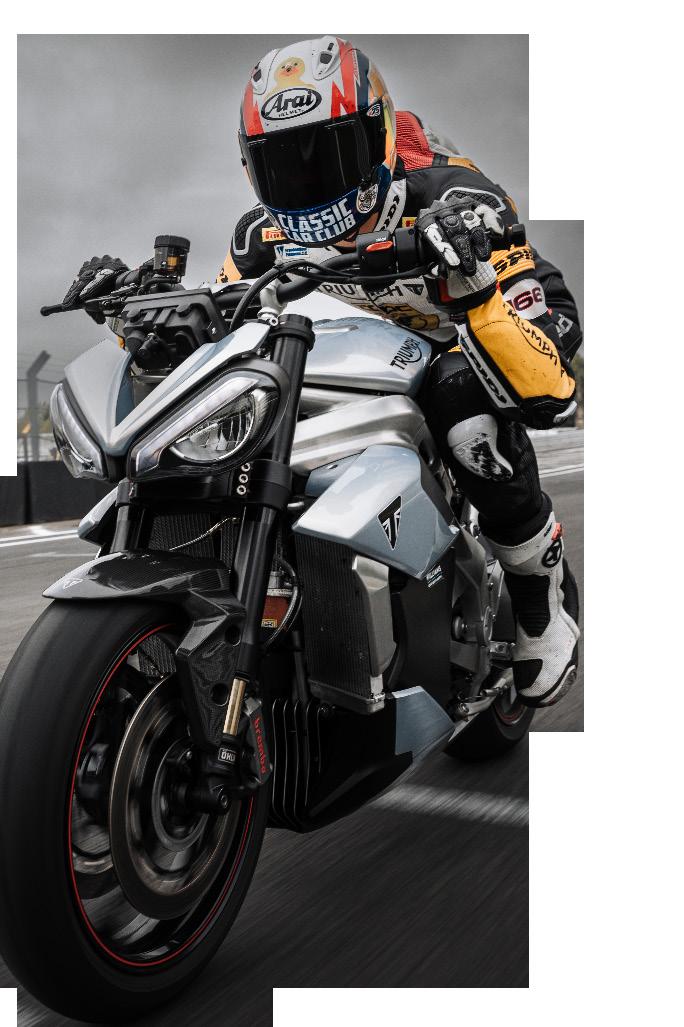

The e-scooter craze in recent years is a notable innovation allowing cheap, inner city transport to take place on a micro level.
Ever since initiatives like e-scooters and bicycle rentals took over the streets, micromobility has become the norm for many city-dwellers. The next big discussion to be had is whether, as another alternative mobility solution, electric motorcycles will become just as exciting as conventionallyfuelled models and, more importantly, how?
The current fuel-powered motorcycle industry is one dominated by engineering heritage and ‘petrol head’ consumers. Nevertheless, the electric vehicle (EV) industry is willingly accepting motorcycles as a form of transport that could change micro-mobility for the better.

While many of the traditional bike brands—the likes of BMW (Motorrad), Harley Davidson, Ducati and Triumph—are emulating their signature styles, pure-play EV companies like Zero and Horwin are showing off electric capabilities, as well.
Dominating the market still, the motorcycle industry is expected to build upon its revenue total of more than US$124bn in 2021 to reach its forecasted US$180bn by 2031. The EV industry has some catching up to do as it increases its share. Nevertheless, the target has been set for the motorcycle industry, meaning that no more petrol and diesel bikes are to be sold from 2035. In light of this news, we already see the main brands taking advantage of electrification and switching their focus to battery-powered motorcycles.
The CE 04 is BMW’s answer to electrified city riding. While it takes most of its aesthetics from the conventional moped, many of its features like its power, storage and charging functionality match those of other electric motorcycles. ‘Motorrad’ being the German word for motorcycle, this branch of the brand was formed in 1923 and functions as a reputable business under the BMW name.

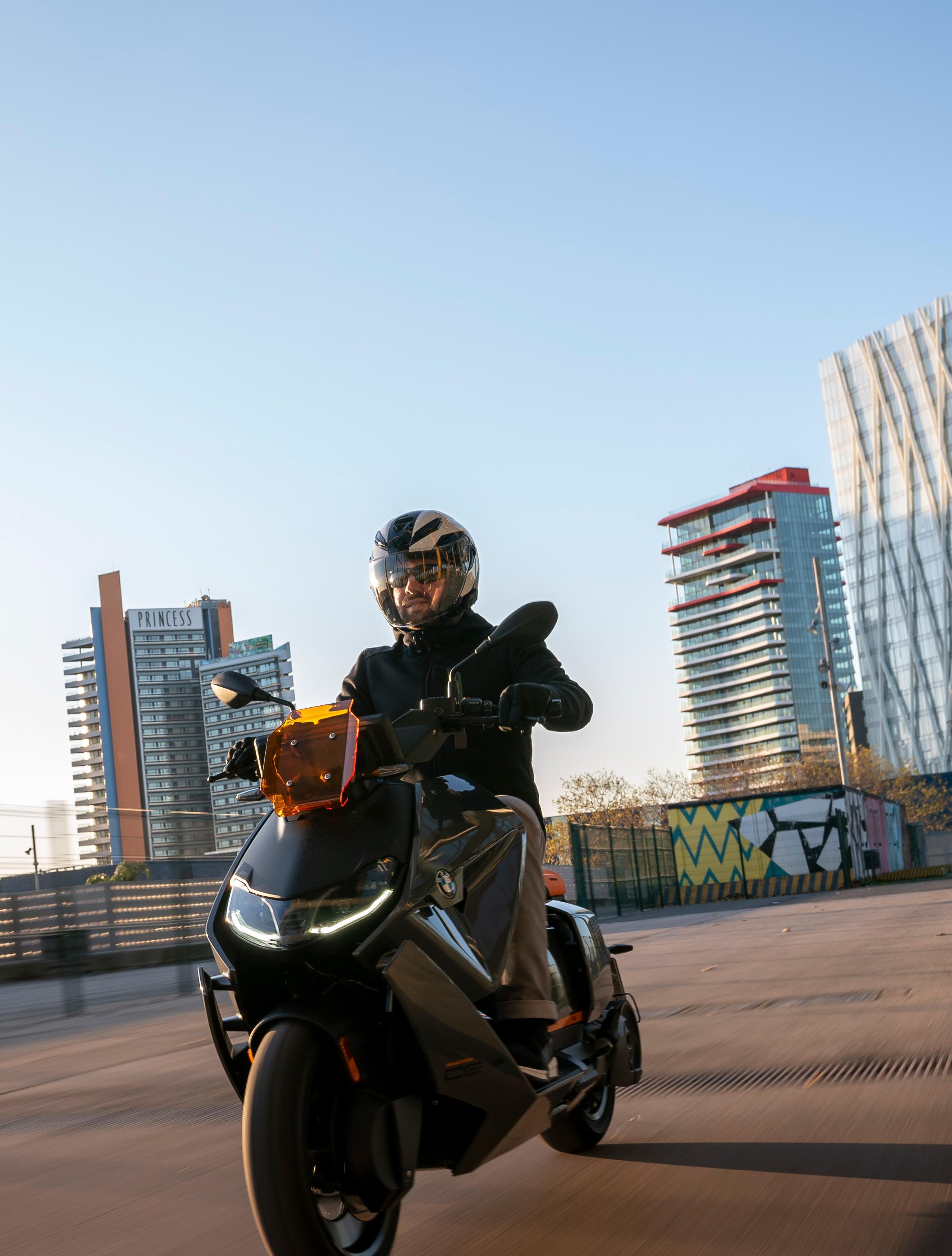

Many would argue, ‘Yes’. EVs are in development as decarbonisation takes precedence over the automotive industry and there seems to be no place for petrolguzzlers. The current market trend shows an increase in the number of electric motorcycles sold, with comparisons against earlier figures (2019 to 2020) showing an increase in adoption.
“All indications are that new petrol motorcycles will have to go off sale in 12 years’ time,” says Umberto Uccelli, Managing Director for Zero EMEA. “We’re already seeing some legacy manufacturers entering the electric space or at least signalling their intention to produce electric motorcycles.” Particularly across EU countries there has been a massive uptake in the registrations of
new electric motorcycles with Italy being the largest adopter in that period. The country recorded 1,664 cumulative registrations in 2019, which increased to 5,607 in 2020. Across other countries like Spain, France, Germany and the UK, the trend is the same, but not to this scale.

German motor company BMW is looking to advance electrification through its BMW Motorrad business, which is responsible for the development of its motorcycles. Meanwhile, Triumph is showcasing the development capabilities of its organisation as technology advances its TE-1 prototype. Ducati is also pushing the boundaries of performance with its innovation in motorsport,

thanks to its partnership with MotoE to create its next-generation motorcycle.

In the years following the first EVs on public roads, this question WATCH OUT GHOST RIDER!
about retaining a similar experience has contributed to a division of sentiments about electrification in this space. For most motorcyclists, the fun of riding is distinguished by senses: the vibration and roaring sound of the bike, the smell of burning fuel and the connectedness
garnered by manually controlled gears. So, how exactly will electric motorcycles emulate that?

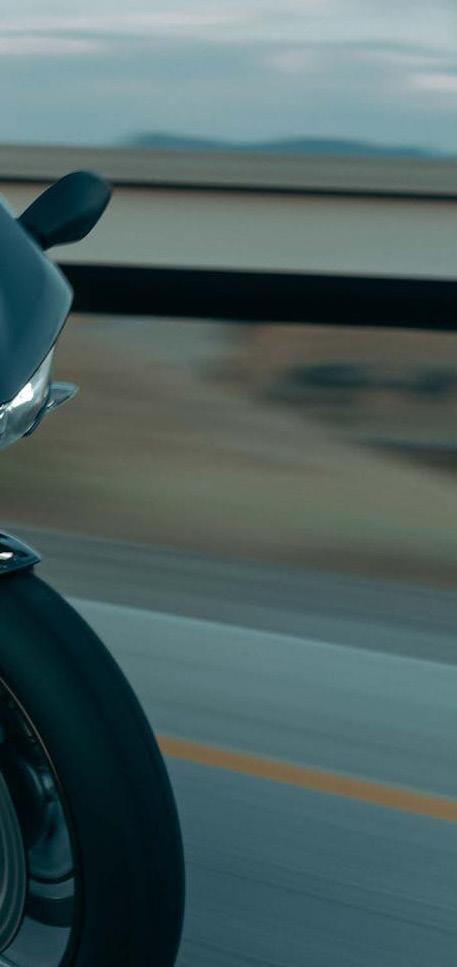
The electric motorcycle era is one that will either facilitate a shift in the way riders use their bikes or appeal to a whole new generation of motorcyclists—those that we imagine are incredibly conscious of their environmental impacts.
But there’s one EV characteristic that even die-hard petrol lovers can’t fault them for— speed. Electric motorcycles, characterised as both smooth and fast, leverage a singlegear powertrain while power delivery provides acceleration that’s second to none.
A pure-play motorcycle brand, Zero was introduced to the industry in 2006, in Scotts Valley, California. The brand was formerly dubbed Electricross, but has since changed to its current name and now offers a range of electric motorcycles for all applications.
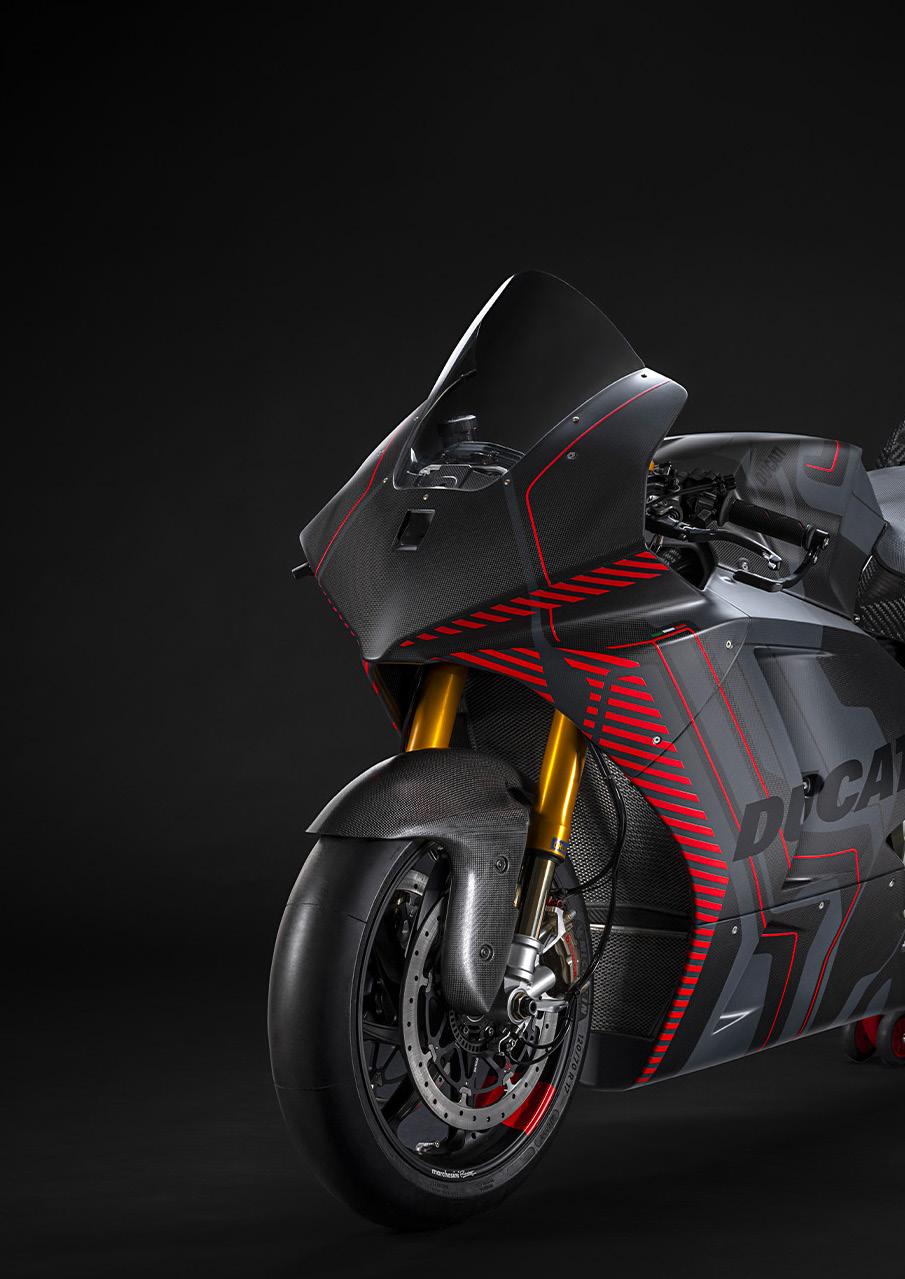

“Zeros are so easy to ride and virtually maintenance free,” says Umberto Uccelli, Managing Director for Zero EMEA, as he boasts the benefits of electrifying motorcycles.
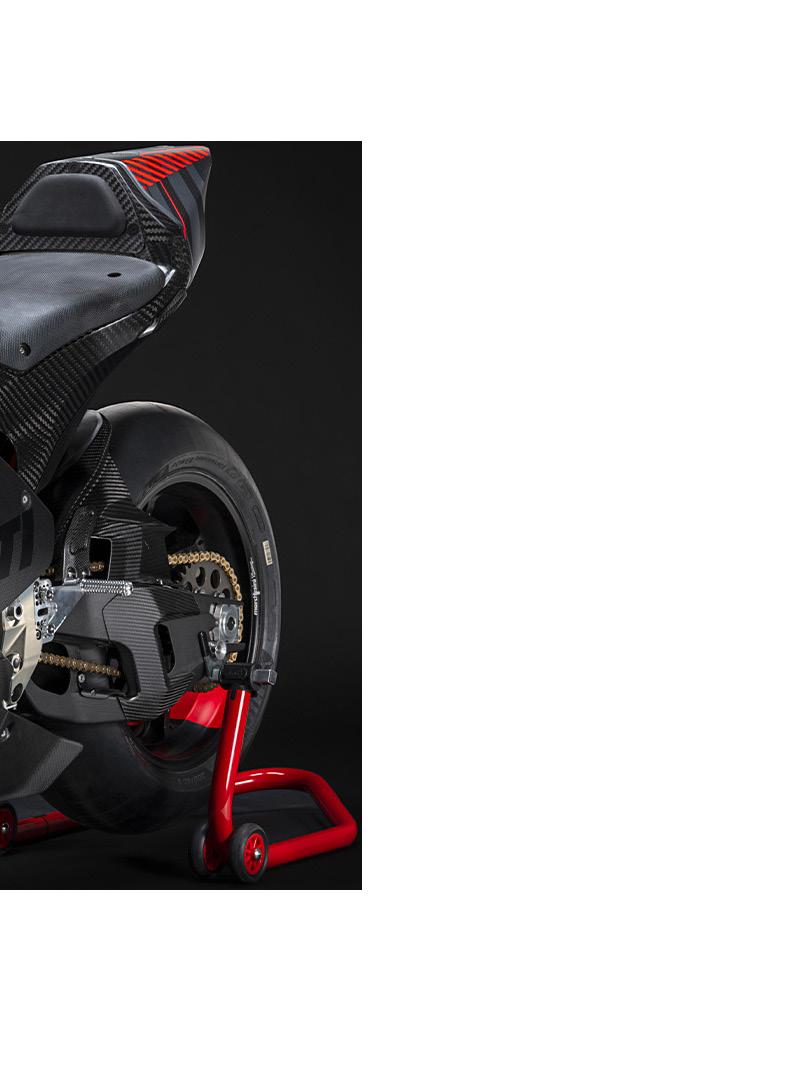

“There are no gears to worry about, and the way in which the power is delivered can be tuned to the individual rider’s preferences. We’re also seeing a rise in small electric powered two-wheelers, which offer so much more freedom than public transport, and this should hopefully get people interested in more premium motorcycles.”
A big year for the motorcycle innovator, Ducati, will be 2023. The racing bike heritage of the brand will soon fast-forward to the modern day as the company supplies MotoE. The firm struck a deal with the FIM to supply its electric bike for the series, which is currently in testing.
There is no doubting the benefits that electrification brings to riders. Power, silence and a limited strain on their conscience. Electric motorcycles are, and will continue to be, both fun and sustainable, but, for adrenaline seekers, there is one factor that may unknowingly increase their heart rates: range anxiety—that moment of panic when the battery reaches 0% and there is no charger in sight.
“While for many, the sound, smell and feel of a traditional petrol engine is a part of the appeal of motorcycling, the more people who have experience of riding an electric motorcycle, the more people appreciate that an electric powertrain can deliver an exhilarating experience,” says Steve Sargent, Chief Product Officer at Triumph Motorcycles.
WE CAN'T WAIT EITHER!
ACCELERATION:
0-60mph in under 3.6 seconds
Triumph’s latest motorcycle developments showcase great achievements by the company, retaining a similar style of bike to that of its fossil-fuel-powered models. Despite keeping the same aesthetic of a traditional Triumph motorcycle, the company is experiencing quite a few challenges in electrifying the product and making it appealing to traditional motorcycle riders.
88 [Oct 2022] EVMAGAZINE.COM

Motorcycles have a definite place in the future of e-mobility—particularly for lastmile logistics and urban commuting—and even have the potential to create a new level of fun. But, as it stands, the industry is not yet geared towards the use of e-motorcycles for long trips, and, due to inherent differences in function, will provide a different level of excitement to that of traditional petrol power.
“Outside of urban settings and for longer journeys, the technology does not currently allow a battery of a suitable weight and size to meet most customers’ needs in terms of range. The price premium for electric is also prohibitive for many,” says Sargent. “It may need a step change in technology, such as commercially viable solid-state batteries, before long-distance electric motorcycles become more realistic.”




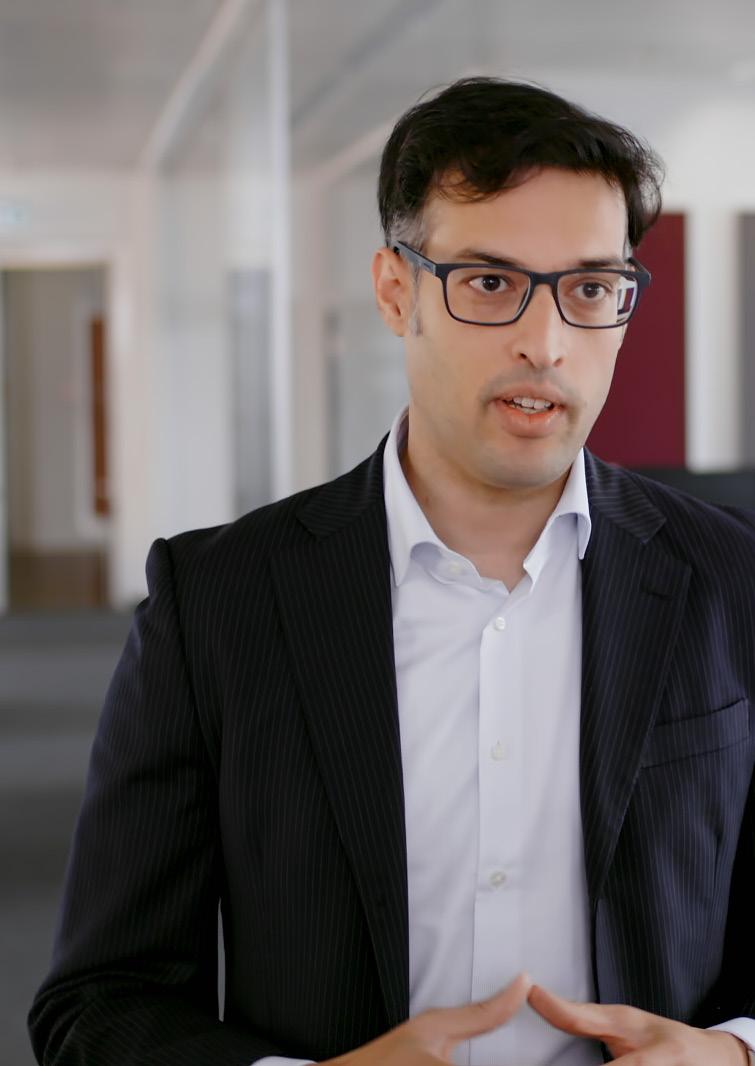
"THE PURPOSE THAT A TECHNOLOGY SERVES SHOULD BE THE DRIVING FACTOR. IF WE APPLY AUTONOMOUS VEHICLES TO PUBLIC TRANSPORT WE CAN ACHIEVE MUCH HIGHER DECONGESTION OF CITIES"
How will the hard-fought vision of autonomous mobility finally be realised? Siemens has brought together two of its global businesses to achieve a goal that will pave the way for safer, greener more efficient modes of travel in our cities. Siemens Digital Industries Software is working with OEMs to guide the development of the hardware and software required for safe, highly autonomous vehicles. Allied to this, Siemens Mobility’s efforts to deliver the compute requirements and communication capabilities needed for the smart city infrastructure will allow vehicles to apply the information received and make intelligent decisions.
A challenge met through collaboration “Ours is a multi-pronged approach,” explains David Fritz, Senior Director, Autonomous and ADAS at Siemens Digital Industries Software (DISW). “At Siemens, we’re engineeringcentric and, with automotive, need to help our partners understand how to make the journey from the mechanical to the digital. It's a big leap and the Siemens Xcelerator portfolio of integrated software and services is helping us make that jump, by providing our partners with the ability to transition many disparate parts into a cohesive system. This includes not only engineering level simulation, but also requirements tracking and traceability from concept all the way through to the production of the vehicle itself.”

How Siemens is developing a digital twin vehicle model for smart cities to help enable a safe and accessible future for autonomous transport
TITLE: Senior Director, Autonomous and ADAS at Siemens Digital Industries Software (DISW)
David Fritz joined Siemens with the acquisition of Mentor Graphics and is currently the Senior Director for Autonomous and ADAS systems at Siemens Digital Industries. David is focused on the modelling of autonomous vehicles and addressing the complexities that the automotive industry and its suppliers are encountering. Before joining Mentor Graphics, Fritz was Senior Director of Technical Program Management at Qualcomm. Previously Fritz worked for NVIDIA as a Tegra chip manager.

TITLE: Vice President, Shared Autonomous Mobility at Siemens Mobility
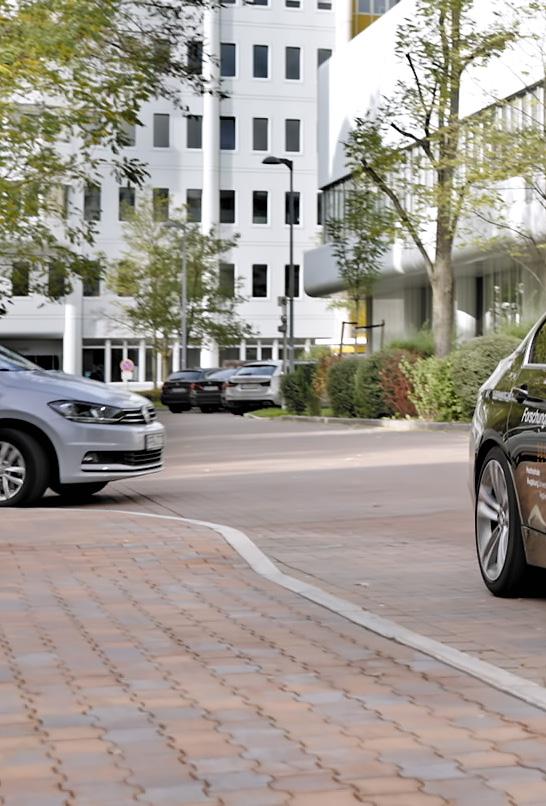
Kunal Chandra is currently the VicePresident for Shared Autonomous Mobility in Siemens Mobility. In his role Kunal leads the development of autonomous mobility solutions for cities and public transport operators. Prior to this Kunal led the New Energy Businesses for Siemens energy where he was responsible for diversification of its portfolio into new energy value chains. In this role Kunal developed the hydrogen and Power-to-X portfolio. Kunal holds a Bachelor in Technology degree from Indian Institute of Technology Delhi and an MBA (Hons.) from IMD Business School, Switzerland.
Siemens Mobility is working to prove the concept of smart cities with governmental bodies and municipalities to deliver the future of mobility, particularly in urban environments. “Technology works best when it’s in the background,” maintains Kunal Chandra, Vice President, Shared Autonomous Mobility at Siemens Mobility. “The purpose that a technology serves should be the driving factor. If you apply autonomous vehicles to public transport you can achieve much higher decongestion of cities. Right now, cities are designed around accommodating vehicles. Frankly, it's bizarre that we have so many journeys of two kilometers where a 75-kilo person is transported in a two-ton car. It’s a problem we’re aiming to solve while making that solution cost-efficient, safe, demand responsive, accessible, and convenient.”
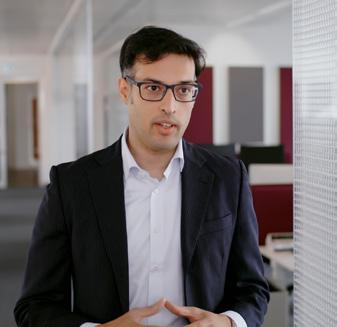
“If you're going to entrust your well-being to a computer, you want to make sure it’s safe to do so,” reasons Fritz. “A big part of the problem is how you can actually show that the vehicle making decisions for you is making them with the appropriate amount of caution. We’re working with governments and regulatory bodies on solutions that make engineering and practical sense.”
Fritz explains his team’s approach is based around scenario level testing for safety. This is combined with security that goes beyond software, starting at the chipset level with integrated circuit design implementation. Reliability is key, because, he reasons, it’s no good having a safe and secure vehicle you can’t rely on to get you from A to B.
“There are many standards emerging to address the key issues at various levels. Therefore, getting involved in their creation and promoting those initiatives is key. However, the big issue remains: How do you show safe, secure, and reliable? Today, everyone is aware of the likes of Tesla and GM, but it's going to take a fleet of hundreds of cars, decades, if not centuries, to drive enough unique miles and encounter enough unique situations to statistically show they're safer than a human driver.”

"IF YOU'RE GOING TO ENTRUST YOUR WELLBEING TO A COMPUTER, YOU WANT TO MAKE SURE IT’S SAFE TO DO SO"
 D AVID FRITZ
D AVID FRITZ
That approach is, of course, totally impractical and not the one preferred by engineers like Fritz and Chandra. “We’re leveraging the formalism and determinism of digital twins of the vehicle,” explains Fritz. “It can then be shown to behave just like the physical vehicle it models, and it can be driven in a virtual world with all of its practical and complex scenarios validated.”
Using a digital twin enables Siemens to simulate thousands of scenarios to develop the learning that will ultimately support intelligent and safe decisions. In the virtual world there are no boundaries to the scenarios the vehicle can learn from. “I can guarantee you that no autonomous vehicle is sitting at the base of a bridge in San Francisco waiting for an

earthquake so it can drive across that bridge to ensure it behaves properly,” reasons Fritz. “Yet, if you're in San Francisco and want to buy an autonomous vehicle, that's an important consideration.”
Region-specific scenarios like this may not happen very often but, when they do, the implications are potentially serious and need to be validated. Many of these are too unsafe or just too difficult to do in a physical vehicle, which is what makes the use of a digital twin so vital.
“Driving students are taught to watch out for pedestrians crossing the road between cars, we’ve all been through that standard process,” reasons Fritz. “If we take that process and identify 50 things you’ve got to learn, we can begin to set up the scenarios for autonomous vehicles that can deliver timeless learnings applicable in all regional settings. Sure, there are many thousands of potential variants of scenarios, but a new driver does not need to experience them all before getting a learner’s permit. What we are saying is that there should be a reasonable set of unsafe and practical scenarios that must be navigated virtually for an autonomous vehicle to earn its learner’s permit.”
Outside of the Middle East - Neom in Saudia Arabia and Masdar in the UAE being recent examples - there are very few cities that can be built smart from the ground up. In most cities across the globe it’s a case of brownfield development notes Chandra.
“It’s important to accurately diagnose the current status of the system before you can implement change. You might want to deploy autonomous shuttles across Paris, but
 D AVID FRITZ
D AVID FRITZ
"WHAT WE ARE SAYING IS THAT THERE SHOULD BE A REASONABLE SET OF UNSAFE AND PRACTICAL SCENARIOS THAT MUST BE NAVIGATED VIRTUALLY FOR AN AUTONOMOUS VEHICLE TO EARN ITS LEARNER’S PERMIT"
without understanding the overall impact it will have on the city, we might end up creating many unpriced externalities. Therefore, it is crucial to create a digital twin of the city before you implement any largescale changes to be able to properly evaluate the overall system impact of the changes. Paris is already on track with this approach, and countries like Singapore are building on the work already done with analogue twins.
The synergy between the digital twin of the autonomous vehicle and the smart city it will operate within needs to be nurtured. “By interfacing with a digital version of the smart city infrastructure we can show that when these vehicles are produced in reality will behave properly in thousands of important scenarios,” adds Fritz.


The ability to communicate across that environment will be supported by cloudbased data handling that allows vehicles to understand, recover and re-use information. Chandra highlights that fast data requirements will rely on low latency communications, which the advent of 5G will further enhance.
“The next step would be to take a vehicle into a real urban environment for testing,” continues Fritz. “In effect, the vehicle would have earned its learner’s permit in the virtual world before it is tested to ensure the physical vehicle behaves as the digital
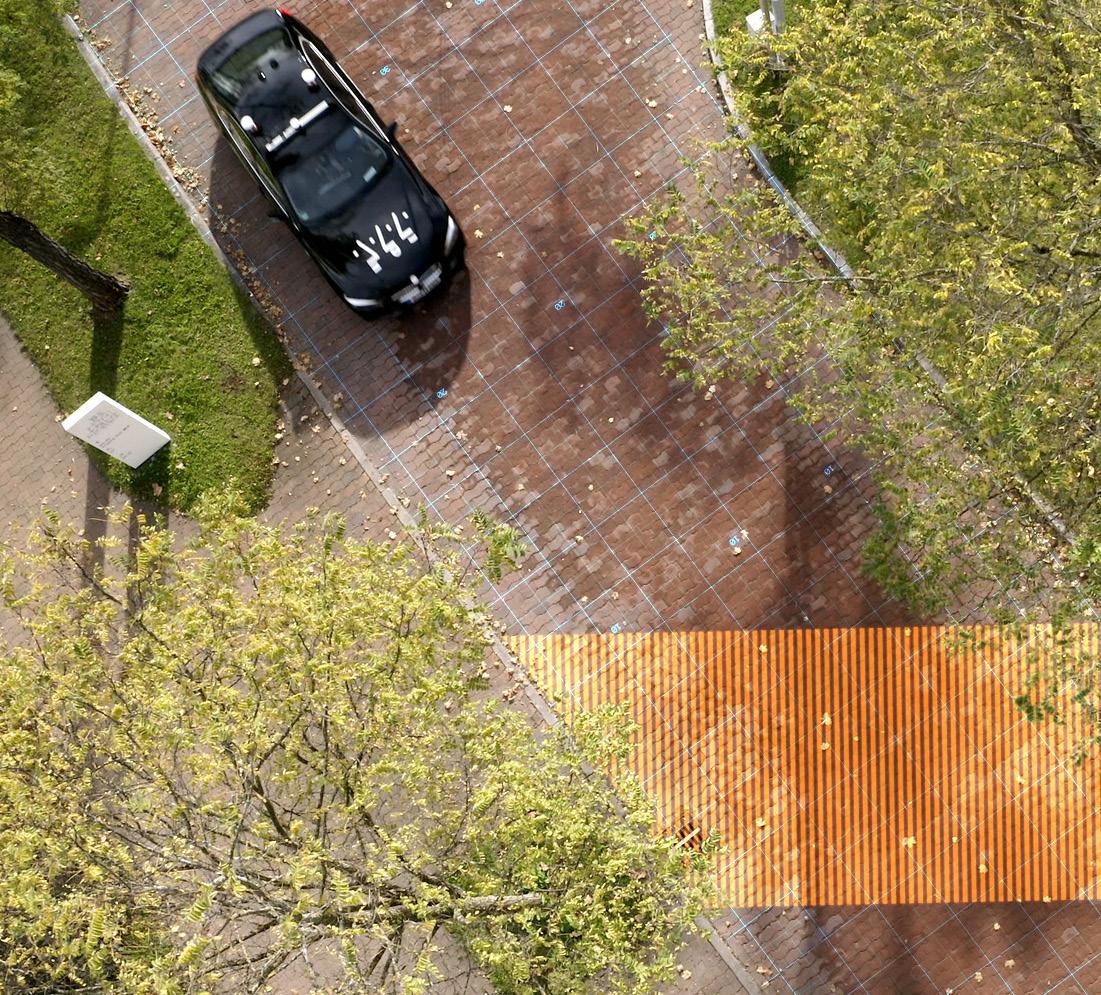
twin predicted it would. This requires the application of a practical methodology based on engineering principles to deliver a safe vehicle.”
To gain traction, Siemens is working with major metropolitan municipalities to develop this synergy and put together a certification process to provide a pathway for autonomous vehicles to get their learner’s permit. “It’s the same process your smartphone has to go through before it can be placed on a network,” says Fritz. “There are environments used to show correct operation before you could take
that device to market and connect up to a carrier’s network. Obviously, vehicles require many more checks and balances, which is where the digital twin can help us demonstrate correct interoperability with the smart city infrastructure that will support safe operation.”
A new vision for mobility Siemens aims to deploy solutions that give back more space to people in cities so they can actually use it to live. “In the long-term, we need to tackle the peak hour problem,” maintains Chandra. “There are certain hours of the day when the demand placed on the entire city infrastructure is high. Yet, as this demand starts to plateau, much of this peak hour infrastructure is sitting there without being utilized.”
Chandra believes it’s vital to make it extremely easy for people to move from one place to another, without having to find a parking spot, or match their schedule with this peak hour problem. “We have to make things demand-responsive,” he says.
“The vision for this technology is to make our cities less passive. They need to become smart and ready to interact with their citizens, however they choose to travel. With the development of fast, low latency communications, we can actually make our cities talk. And with sensors everywhere to monitor the quality of life, to monitor all aspects of mobility, this information would enhance the driving experience and ultimately lower accident rates. Cities can tell us so much, we just need to embrace the opportunity to listen.”

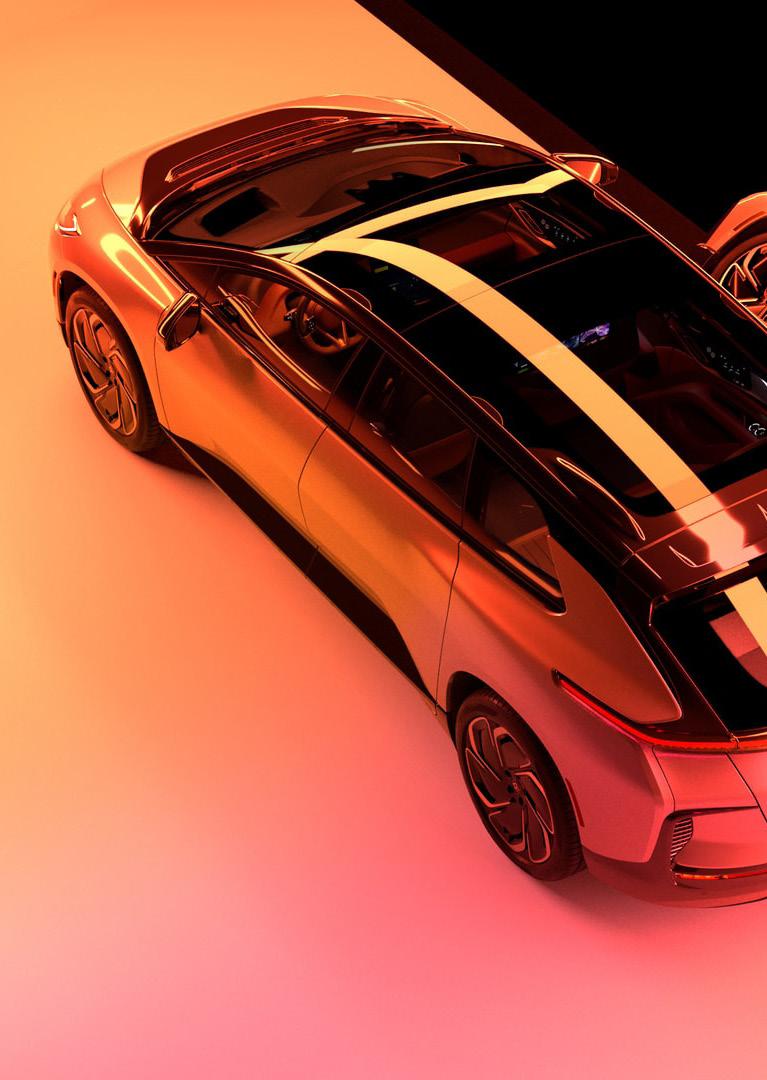
Based on their market cap in July 2022, we take a look at the top 10 pure-play EV companies and their influence on the electric vehicle revolution

The ever-changing automotive industry is now host to many futuristic car concepts. It seems pure-play EV companies are building the cars of the future to be as sleek and innovative as we could all imagine. Faraday Future is one of the firms that’s not only producing a stylish, technically advanced vehicle with 1,050 horsepower, but is also navigating the nuances of EV market entry.
The FF91 is the company’s contribution to the decarbonisation of the automotive industry, housing innovative solutions developed for entertainment and comfort.


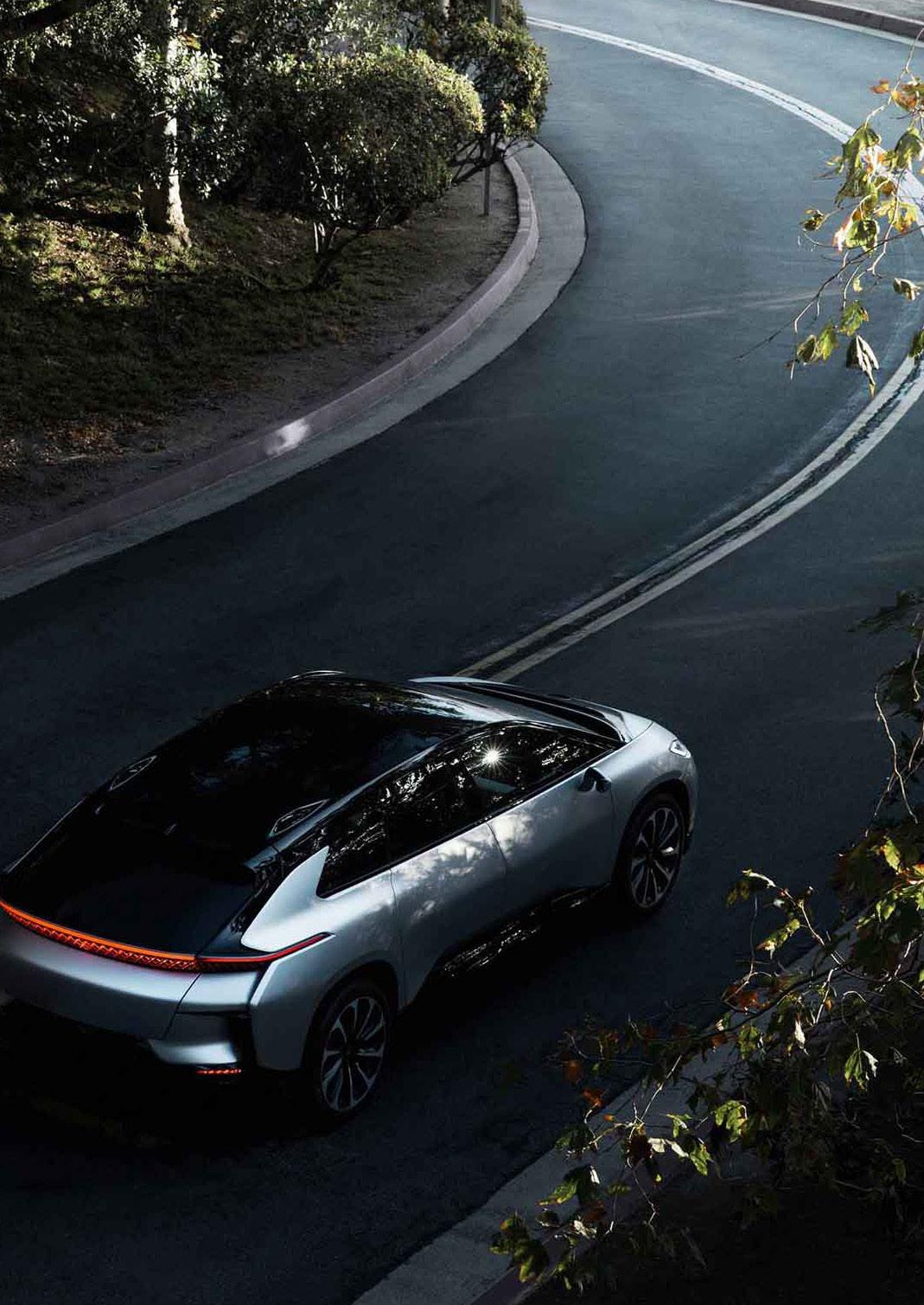
Influencing a slightly different industry, Nikola Motor is integral to the EV sector—but in a novel way. The heavy goods industry is one of the most significant areas for development in terms of emissions, and Nikola is responsible for a range of vehicles including battery-electric vehicles (BEVs) and fuel-cell electric vehicles (FCEVs), which are expected in 2023 and 2024.
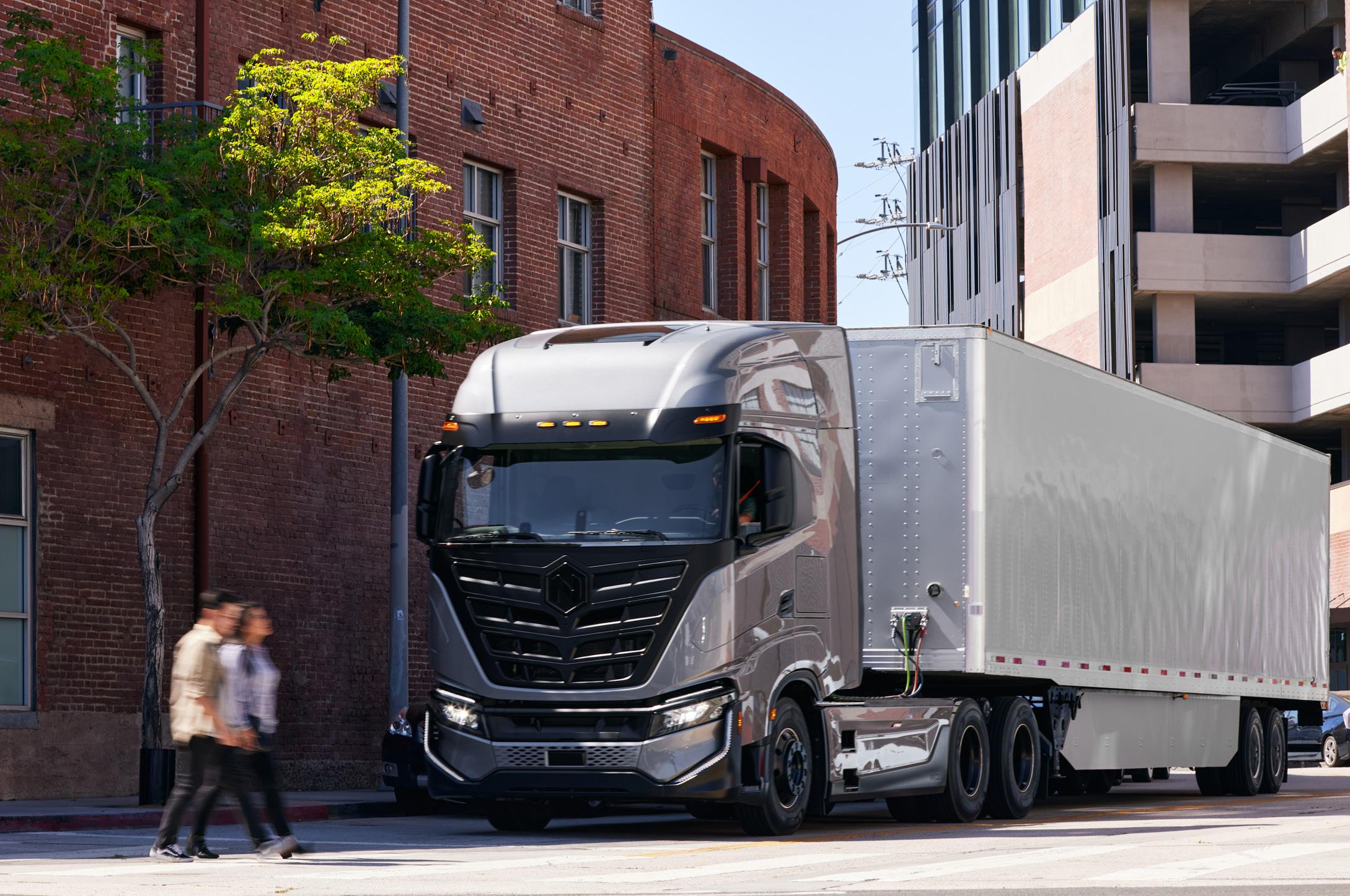
The leading manufacturer of heavy-duty semi-trucks also dips into energy solutions as part of its overall mission to disrupt the industry, aiming to reach net-zero emissions across the globe. The Tre BEV is capable of up to 350 miles-per-charge for shorthaul journeys. The combination of its motor and 753kWh battery achieves 645 horsepower and, even better, the truck can be charged in two hours.
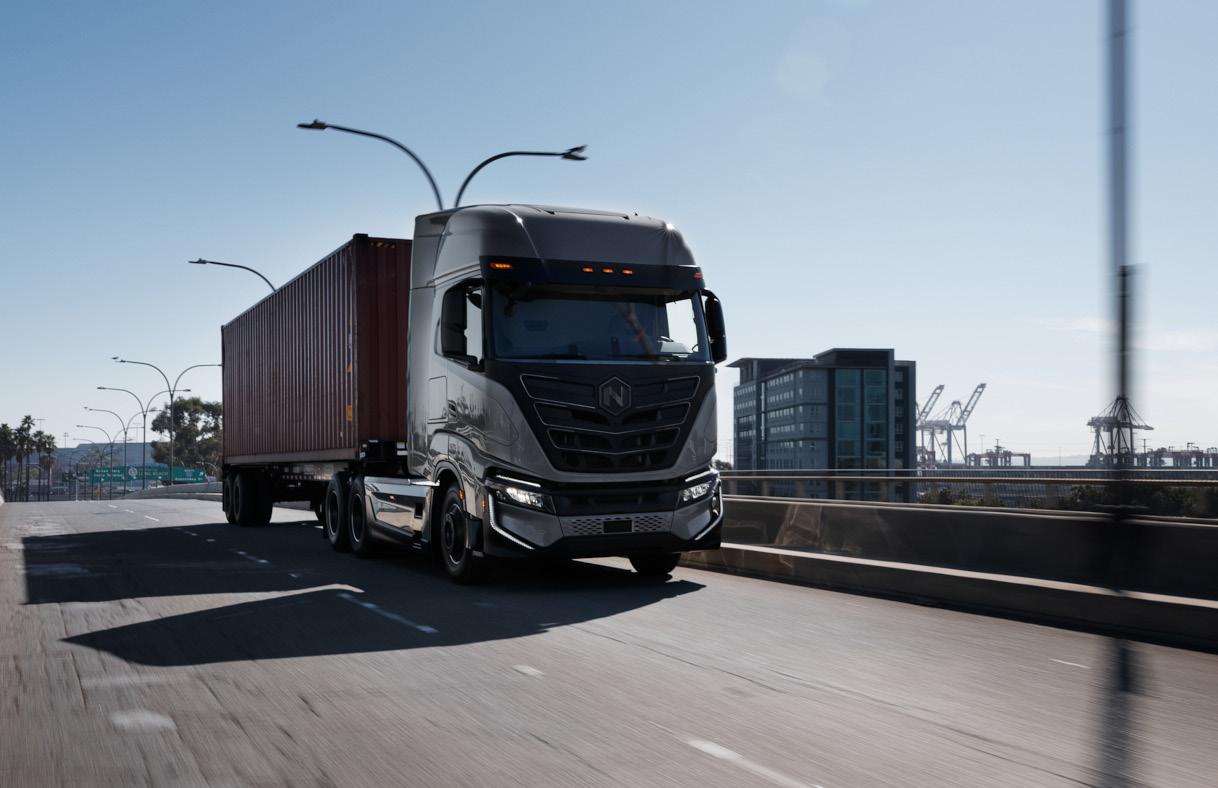
Fisker is all about mitigating waste. The company was founded by Henrik Fisker as a solution to ocean debris and emissions. The Fisker Ocean is an SUV that boasts multiple sustainability benefits, including the sustainable materials that go into each one and smart technology to make the most of natural energy sources.

SolarSky is one of the company’s major achievements with the Fisker Ocean, providing drivers the ability to harvest sunlight through the solar cells on its roof. When fully exposed, the car is capable of producing energy for 1,500 emissions-free miles per year.
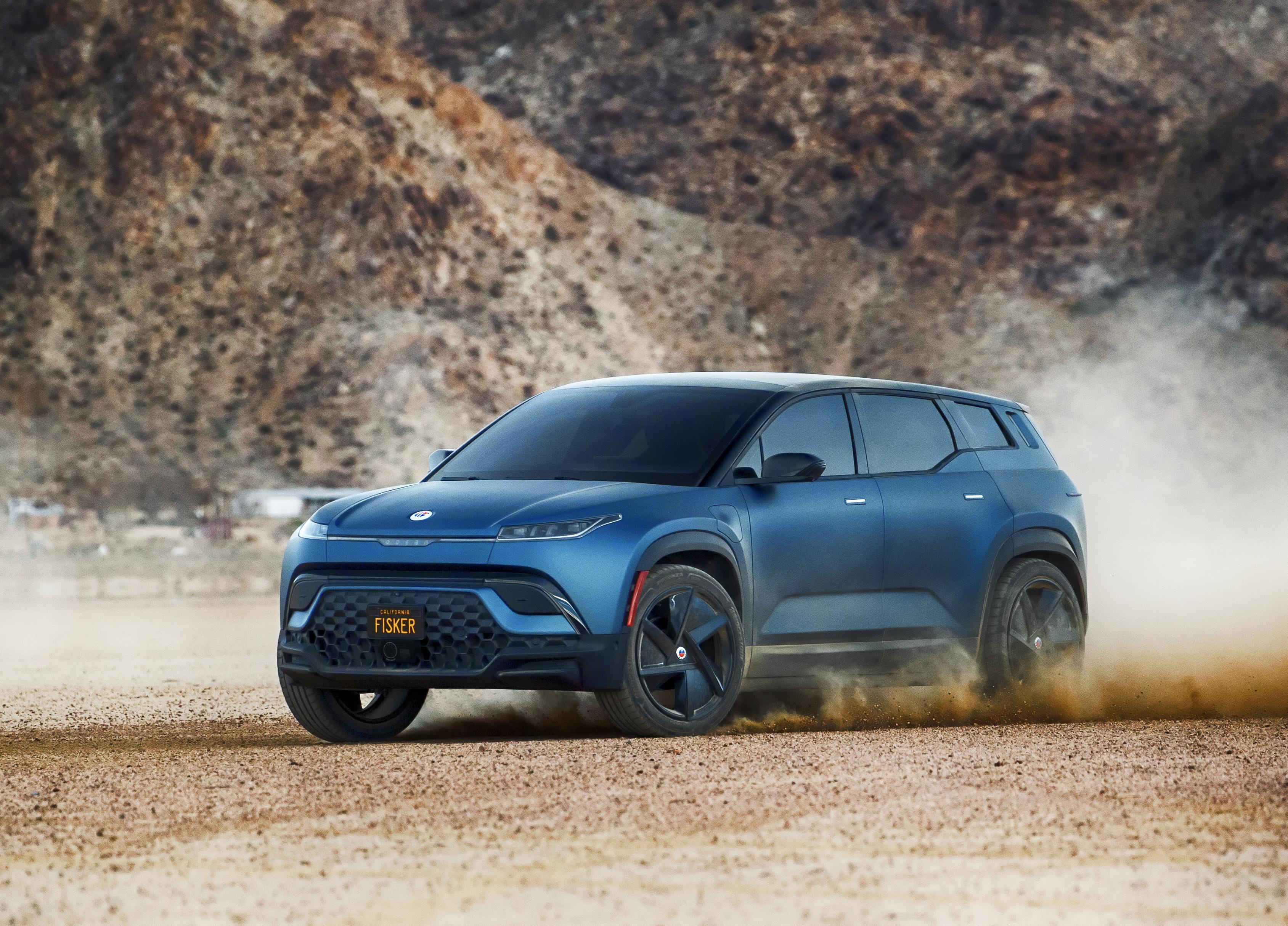
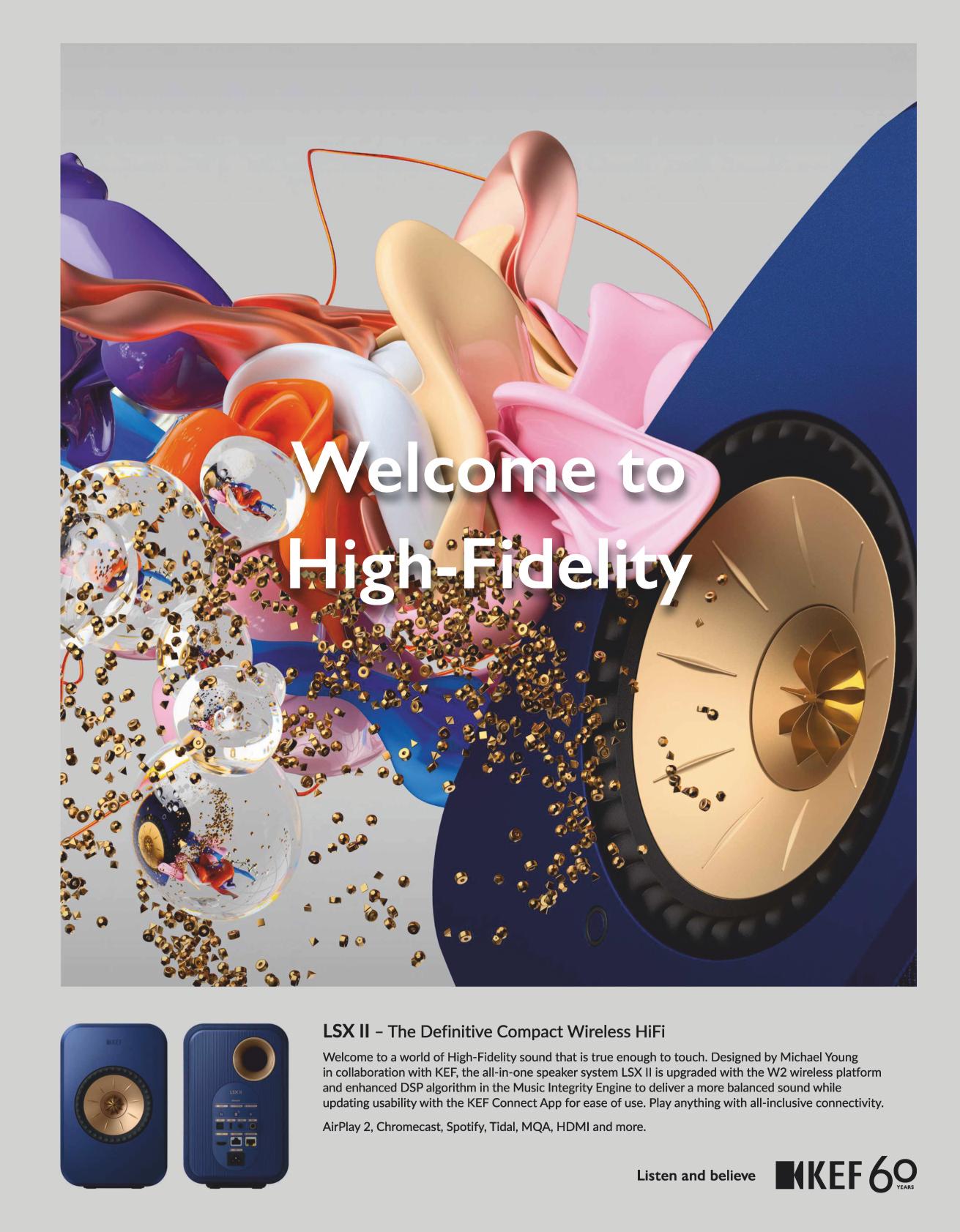

The Geely subsidiary and sister organisation to Volvo Cars, Polestar is increasing in popularity as it provides reliable, high-quality EVs.
Led by Thomas Ingenlath, the company has experienced serious growth through the launch of its Polestar 2 model and, with its recent success listing the company on the New York Stock Exchange (NYSE), Polestar is working on new vehicles, the Polestar 3 and Polestar 5—expected to launch in 2024.


WATCH
XPeng Motors is the automotive trading name of Guangzhou Xiaopeng Motors Technology Co Ltd, which is well-invested in the EV industry. The company showcases some exciting visuals and concepts that, if implemented correctly, would revolutionise personal transport.
The XPeng brand is focused on inspiring new life experiences as it offers a range of EVs— including the XPeng P7 that sports a 706km range—achieves 0 - 100km/h in 4.5 seconds and leverages XPilot 3.0 semi-autonomous capabilities.



One of the most significant companies of 2021 to 2022, Rivian Automotive has navigated a turbulent start to its reign in the EV industry. The Rivian R1T and R1S are built for adventure, allowing drivers to reach new areas through electric propulsion.
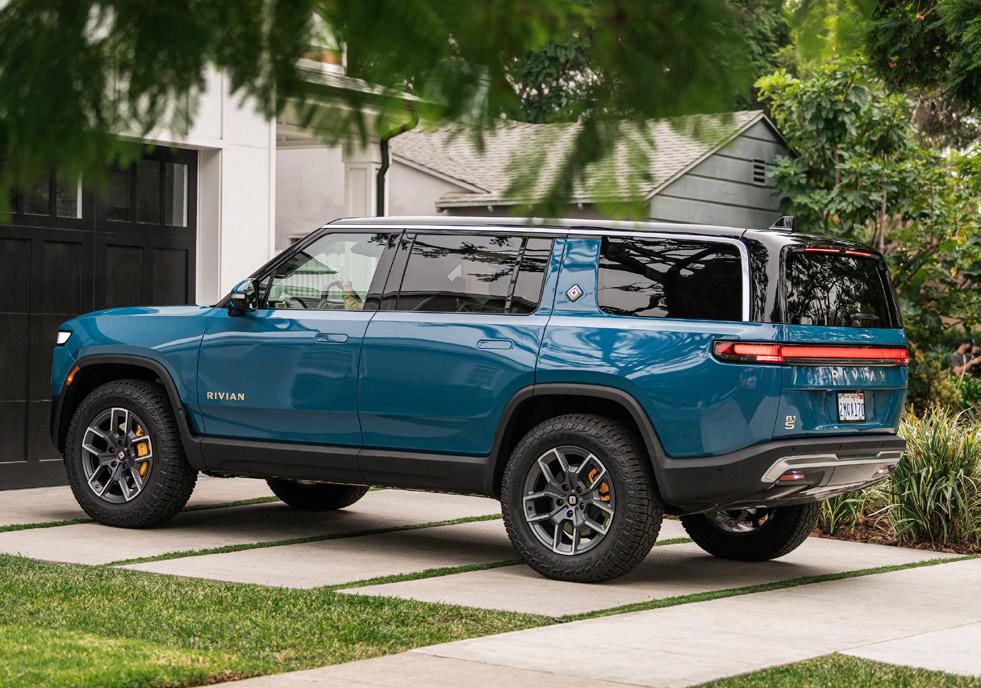
Following a stint of manufacturing delays, vehicles have been rolling out of the factory on the regular and delivered to US citizens.
The company’s Founder & CEO, RJ Scaringe, is a petrol-head at heart but saw ample opportunity to enter the EV space and reach a new market of adventurous pickup and SUV drivers.
The company has also partnered with retail giant Amazon to supply 100,000 electric vans by 2030.

#4 112 [Oct 2022] EVMAGAZINE.COM
The car’s EPA range is recorded at 520 miles and its electric motor produces 1,111 horsepower in a luxurious-looking vehicle body.
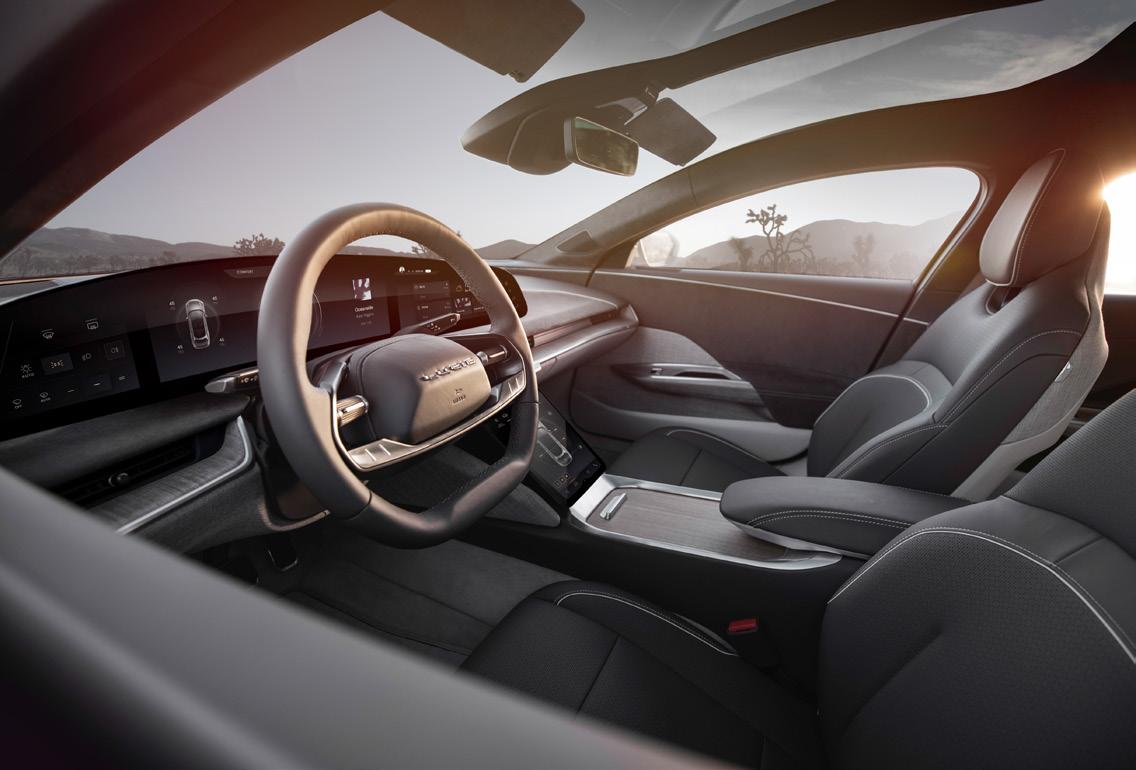
William Li’s popular brand holds one of the highest market capitalisation figures in the industry. The Chinese business executive and entrepreneur has propelled the company to great success as it offers an innovative solution to battery charging.
NIO cars operate on a system of swappable batteries, which alleviates the time wasted in charging a car on the side of the road or at a designated charging station. NIO is looking to cater for all drivers as it offers saloon EVs as well as SUV-style and one of the world’s fastest electric cars.



Another contender from the Asian automotive industry, Li Auto designs, develops and manufactures vehicles as part of its mission: ‘Create a Mobile Home, Create Happiness’. Technology is at the heart of the business due to becoming the primary driving force in EV development.
The company’s Li L9 model has received over 30,000 orders as of June 2022, following the unveiling of the flagship SUV that same month. The firm, like others in the list, is on the NASDAQ and witnessed a spike in its USD share price directly after the announcement.

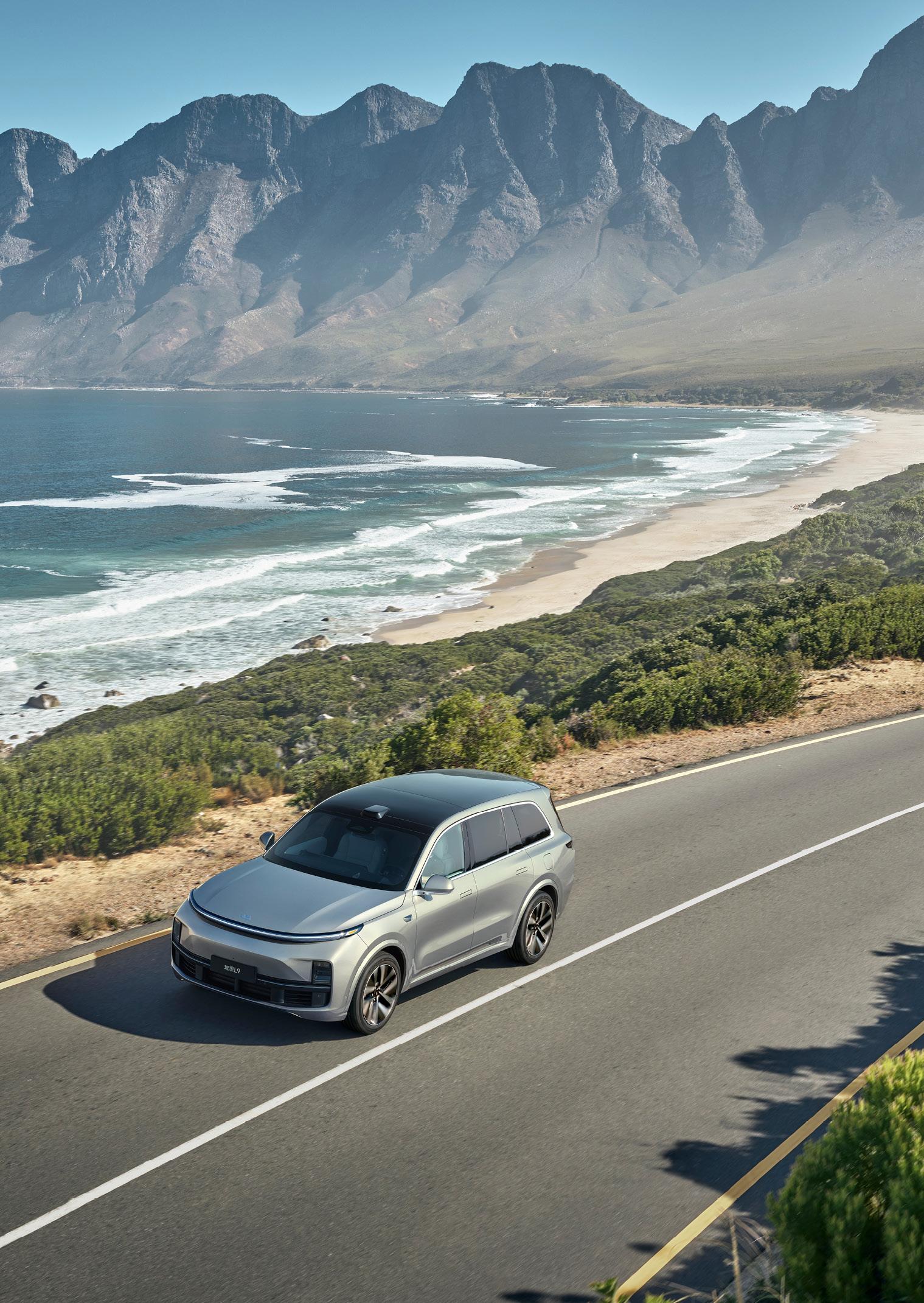
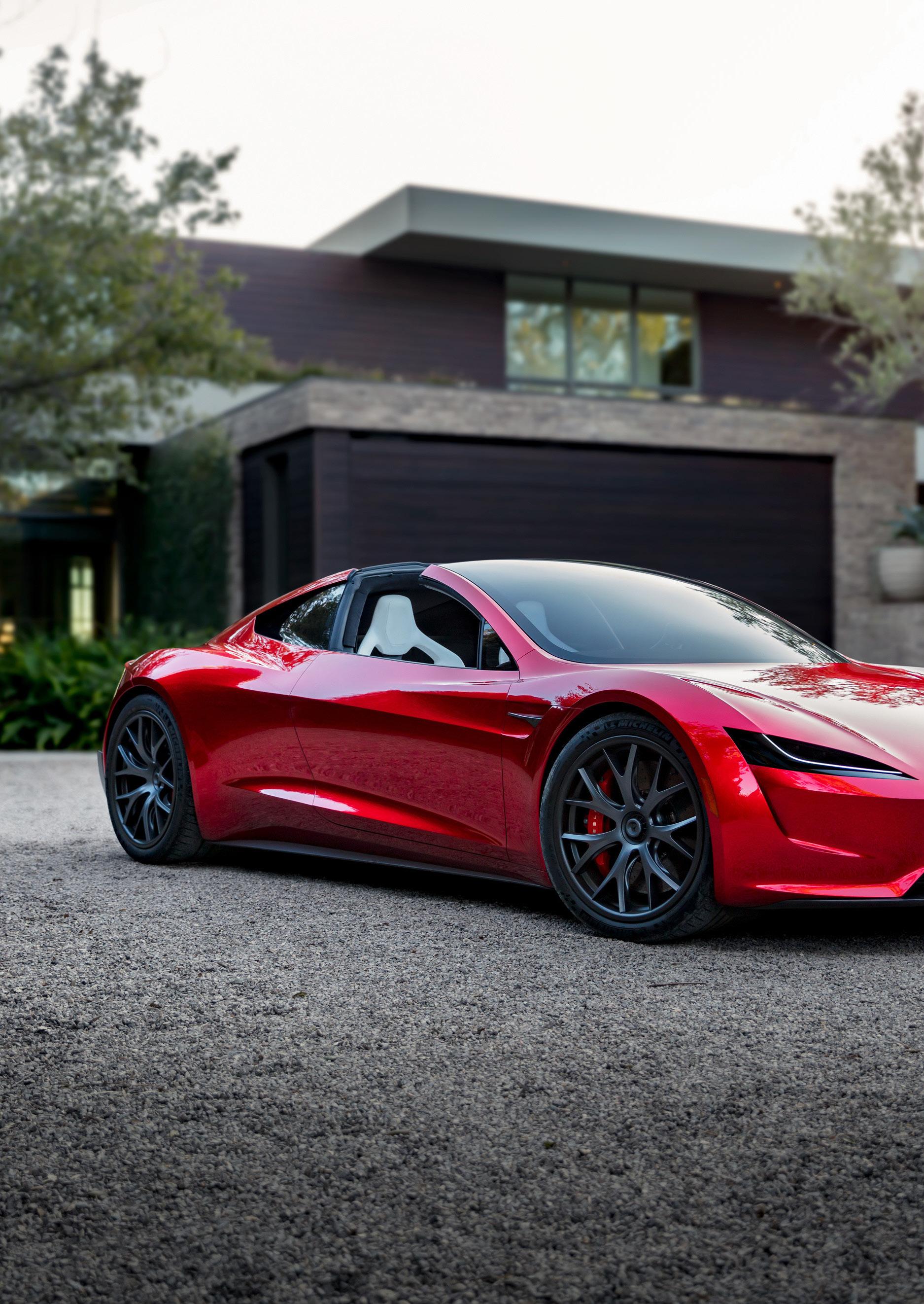
Needing no introduction, Tesla is renowned for having revolutionised the way the world consumes electric vehicles. Founded in July 2003, Tesla is the result of a group of engineers’ collective efforts to change the way mobility works. The company set out to prove that electric mobility has a place in the modern automotive sector, and now—nearly 20 years later—the company is the market leader.
The company never ceases to amaze as it introduces new concepts and brings them to fruition, with the long-awaited Cybertruck expected to roll off the production line in 2023. The Tesla Roadster will be the company’s triumph in speed as it produces a car to match the acceleration of supercars entering the market.
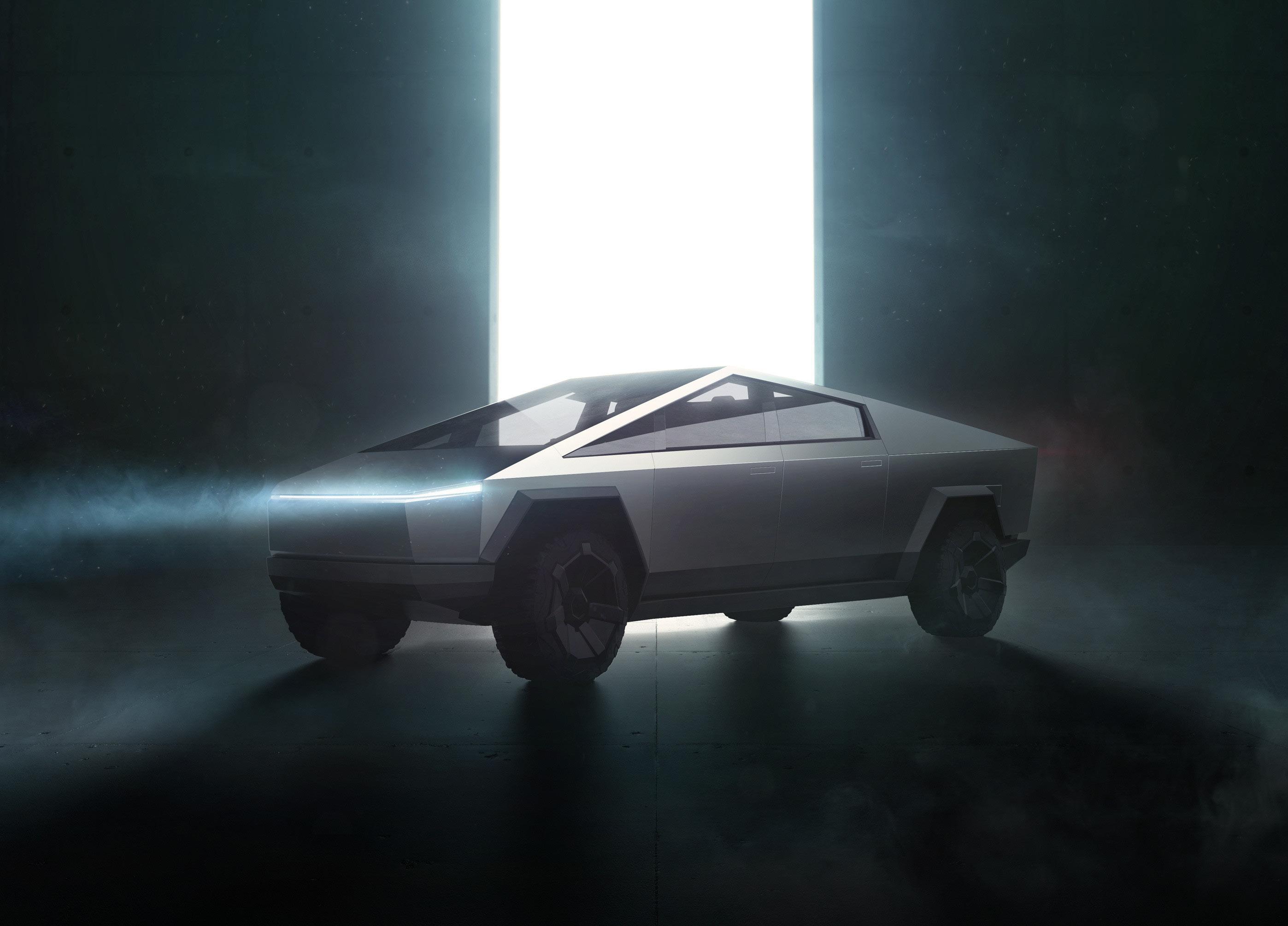




This hybrid event will be broadcast LIVE to a global audience of enthusiasts and welcome an invite-only EVIP audience to attend exclusive keynote presentations from industry innovators and EV evangelists.
There was no better choice of venue for the launch of the EV LIVE programme.
The London Transport Museum, located in the heart of Covent Garden, showcases the genesis of the automotive industry and is therefore the perfect place to glimpse into the future of mobility.
The venue follows its own sustainability agenda, committing to carbon neutral by 2030.
The Future of EV will be live streamed to an exclusive global audience from 6:35pm GMT until 8pm GMT.
The show format will consist of six 8-minute presentations from leading experts and influencers discussing The Future of EV.
EVIP in-person attendees can look forward to exclusive networking opportunities post show.
Join us online and witness what will be the future of Electric Vehicles...


